

Chairs
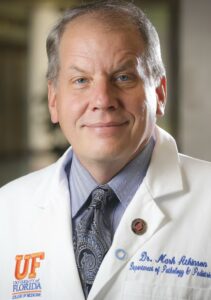 Dr. Atkinson is the American Diabetes Association Eminent Scholar for Diabetes Research and the Jeffrey Keene Family Professor in the Department of Pathology at the University of Florida. With nearly 700 publications and over 40 years of research in type 1 diabetes, he has received numerous prestigious awards, including the Outstanding Scientific Achievement, Harold Rifkin, and Albert Renold awards from the ADA, Mary Tyler Moore and S. Robert Levine award from the JDRF, and the Jacobeus award from the Novo Nordisk foundation.
Dr. Atkinson is the American Diabetes Association Eminent Scholar for Diabetes Research and the Jeffrey Keene Family Professor in the Department of Pathology at the University of Florida. With nearly 700 publications and over 40 years of research in type 1 diabetes, he has received numerous prestigious awards, including the Outstanding Scientific Achievement, Harold Rifkin, and Albert Renold awards from the ADA, Mary Tyler Moore and S. Robert Levine award from the JDRF, and the Jacobeus award from the Novo Nordisk foundation.
Dr. Atkinson has played a key leadership role in numerous organizations, including the JDRF, NIH, and the ADA, and serves as Executive Director of the JDRF Network for Pancreatic Organ Donors with Diabetes (nPOD). His research focuses on the prevention and cure of type 1 diabetes, including disease prediction, environmental factors, pancreas pathology, and clinical trials. With over $100M in career funding, he has also mentored over 30 young researchers and is President of Insulin for Life USA, a charity providing insulin to underserved communities worldwide.
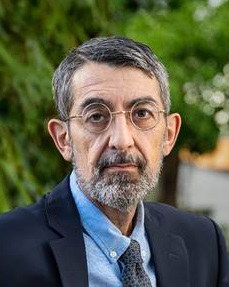 Dr. Alberto Pugliese is the Samuel Rahbar Endowed Chair in Diabetes & Drug Discovery Chair and Professor, Department of Diabetes Immunology; Director, The Wanek Family Project for Type 1 Diabetes at City of Hope’s Arthur Riggs Diabetes & Metabolism Research Institute. As a co-executive director of nPOD, he facilitated the development of the pancreatic tissue slicing platform at nPOD. His research interests include understanding the genetic and cellular mechanisms that regulate immunological self-tolerance, specifically targeting molecules involved in diabetes. Dr. Pugliese is a champion of collaboration and team-science approaches, recognized by the Helmsley Charitable Trust with the George S. Eisenbarth nPOD Award for Team Science.
Dr. Alberto Pugliese is the Samuel Rahbar Endowed Chair in Diabetes & Drug Discovery Chair and Professor, Department of Diabetes Immunology; Director, The Wanek Family Project for Type 1 Diabetes at City of Hope’s Arthur Riggs Diabetes & Metabolism Research Institute. As a co-executive director of nPOD, he facilitated the development of the pancreatic tissue slicing platform at nPOD. His research interests include understanding the genetic and cellular mechanisms that regulate immunological self-tolerance, specifically targeting molecules involved in diabetes. Dr. Pugliese is a champion of collaboration and team-science approaches, recognized by the Helmsley Charitable Trust with the George S. Eisenbarth nPOD Award for Team Science.
 Dr. Carmella Evans-Molina is the Eli Lilly Professor of Pediatric Diabetes at the Indiana University School of Medicine in Indianapolis, IN, where she serves as Director of the IU Center for Diabetes and Metabolic Diseases, Program Leader for the Diabetes Research Group in the Herman B Wells Center for Pediatric Research, and as a Staff Physician at the Roudebush VA Medical Center. Her research centers on unraveling the molecular and signaling pathways operating within pancreatic beta cells that drive the transition from a compensated state of euglycemia to decompensated states of hyperglycemia in both type 1 (T1D) and type 2 diabetes (T2D). In basic science work, Dr. Evans-Molina has pioneered the idea that alterations in calcium signaling within the beta cell secretory pathway are linked with impairments in insulin secretion, processing, trafficking and the activation of organelle-specific stress pathways, including endoplasmic reticulum and Golgi stress. Dr. Evans-Molina’s translational and clinical projects harness the knowledge gained from studying stress within the beta cell secretory pathway to develop innovative biomarker strategies that hold the potential to be integrated into screening paradigms and to identify targets for disease-modifying therapies in T1D. Her research is funded by the NIH, the VA, the JDRF, and the Helmsley Charitable Trust. She is an investigator in the NIH-funded Type 1 Diabetes Trialnet, RADIANT, and TIDAPC/DREAM Networks. She serves as Co-Executive Director of the Network for Pancreatic Organ Donors with Diabetes (nPOD), Co-PI of the NIH-funded Integrated Islet Distribution Program, and President of the Immunology of Diabetes Society (IDS).
Dr. Carmella Evans-Molina is the Eli Lilly Professor of Pediatric Diabetes at the Indiana University School of Medicine in Indianapolis, IN, where she serves as Director of the IU Center for Diabetes and Metabolic Diseases, Program Leader for the Diabetes Research Group in the Herman B Wells Center for Pediatric Research, and as a Staff Physician at the Roudebush VA Medical Center. Her research centers on unraveling the molecular and signaling pathways operating within pancreatic beta cells that drive the transition from a compensated state of euglycemia to decompensated states of hyperglycemia in both type 1 (T1D) and type 2 diabetes (T2D). In basic science work, Dr. Evans-Molina has pioneered the idea that alterations in calcium signaling within the beta cell secretory pathway are linked with impairments in insulin secretion, processing, trafficking and the activation of organelle-specific stress pathways, including endoplasmic reticulum and Golgi stress. Dr. Evans-Molina’s translational and clinical projects harness the knowledge gained from studying stress within the beta cell secretory pathway to develop innovative biomarker strategies that hold the potential to be integrated into screening paradigms and to identify targets for disease-modifying therapies in T1D. Her research is funded by the NIH, the VA, the JDRF, and the Helmsley Charitable Trust. She is an investigator in the NIH-funded Type 1 Diabetes Trialnet, RADIANT, and TIDAPC/DREAM Networks. She serves as Co-Executive Director of the Network for Pancreatic Organ Donors with Diabetes (nPOD), Co-PI of the NIH-funded Integrated Islet Distribution Program, and President of the Immunology of Diabetes Society (IDS).
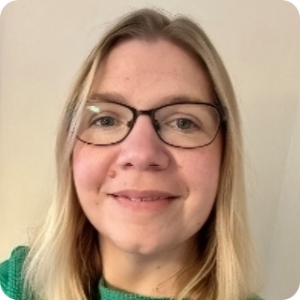 Sarah Richardson is an associate professor at the University of Exeter with a passionate interest in Type 1 diabetes and Team Science. She co-leads the Islet Biology Exeter (IBEx) group. Her research utilizes unique cohorts of type 1 diabetes pancreas and is centered around understanding the disease processes by which beta cells are targeted and destroyed. She has particular interests in the role that enteroviruses and anti-viral responses play in the disease, and how age at diagnosis may impact diabetes endotypes. She curates the Exeter Archival Diabetes Biobank, which contains the most extensive and rarest collection of recent-onset Type 1 diabetes pancreata globally. She has held prestigious Fellowships from the Wellcome Trust, the Diabetes Research Wellness Foundation, a Breakthrough T1D 5-year Career Development Award and was recently awarded a Steve Morgan Foundation Grand Challenge Senior Research Fellowship.
Sarah Richardson is an associate professor at the University of Exeter with a passionate interest in Type 1 diabetes and Team Science. She co-leads the Islet Biology Exeter (IBEx) group. Her research utilizes unique cohorts of type 1 diabetes pancreas and is centered around understanding the disease processes by which beta cells are targeted and destroyed. She has particular interests in the role that enteroviruses and anti-viral responses play in the disease, and how age at diagnosis may impact diabetes endotypes. She curates the Exeter Archival Diabetes Biobank, which contains the most extensive and rarest collection of recent-onset Type 1 diabetes pancreata globally. She has held prestigious Fellowships from the Wellcome Trust, the Diabetes Research Wellness Foundation, a Breakthrough T1D 5-year Career Development Award and was recently awarded a Steve Morgan Foundation Grand Challenge Senior Research Fellowship.
 Dr. Todd Brusko appointed as a professor in the Department of Pathology at the University of Florida. He currently serves as the Assistant Dean of Basic Research for the College of Medicine and the Research Director of the UF Diabetes Institute. His interests are centrally themed around understanding the mechanisms by which the immune system maintains a state of control, often referred to as immunological tolerance. This includes studies of the innate and adaptive immune system, with a particular focus on adaptive immune receptor diversity and control through co-stimulation and understanding the genetic variants controlling these processes, as well as identifying the mechanisms at play in individuals who develop immune-mediated diseases. Toward this goal, Dr. Brusko has been involved in several team science projects including the Network for Pancreatic Organ donors with Diabetes program (Breakthrough T1D – nPOD), the Human Biomolecular Atlas Program (HuBMAP –NIH Directors Fund), NIH Human Islet Research Network -HPAP program, and the Human Atlas for Neonatal and Developmental Early Life – Immunity (HANDEL-I) program supported by the Helmsley Charitable Trust.
Dr. Todd Brusko appointed as a professor in the Department of Pathology at the University of Florida. He currently serves as the Assistant Dean of Basic Research for the College of Medicine and the Research Director of the UF Diabetes Institute. His interests are centrally themed around understanding the mechanisms by which the immune system maintains a state of control, often referred to as immunological tolerance. This includes studies of the innate and adaptive immune system, with a particular focus on adaptive immune receptor diversity and control through co-stimulation and understanding the genetic variants controlling these processes, as well as identifying the mechanisms at play in individuals who develop immune-mediated diseases. Toward this goal, Dr. Brusko has been involved in several team science projects including the Network for Pancreatic Organ donors with Diabetes program (Breakthrough T1D – nPOD), the Human Biomolecular Atlas Program (HuBMAP –NIH Directors Fund), NIH Human Islet Research Network -HPAP program, and the Human Atlas for Neonatal and Developmental Early Life – Immunity (HANDEL-I) program supported by the Helmsley Charitable Trust.
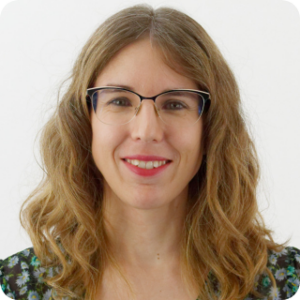 Dr. Teresa Rodriguez-Calvo is the group leader of the Type 1 Diabetes Pathology Research Unit at the Institute of Diabetes Research, Helmholtz Munich. Her research focuses on understanding the early changes that occur in the pancreas in individuals at risk of developing type 1 diabetes, specifically investigating whether there is a defect in beta cell function and a disruption in insulin synthesis before clinical onset. She is particularly interested in whether this disruption leads to the accumulation of incorrect forms of proinsulin in beta cells, which might be recognized by the immune system. This recognition could make beta cells more visible to the immune system and affect how the immune system interacts with and recognizes these defective beta cells.
Dr. Teresa Rodriguez-Calvo is the group leader of the Type 1 Diabetes Pathology Research Unit at the Institute of Diabetes Research, Helmholtz Munich. Her research focuses on understanding the early changes that occur in the pancreas in individuals at risk of developing type 1 diabetes, specifically investigating whether there is a defect in beta cell function and a disruption in insulin synthesis before clinical onset. She is particularly interested in whether this disruption leads to the accumulation of incorrect forms of proinsulin in beta cells, which might be recognized by the immune system. This recognition could make beta cells more visible to the immune system and affect how the immune system interacts with and recognizes these defective beta cells.
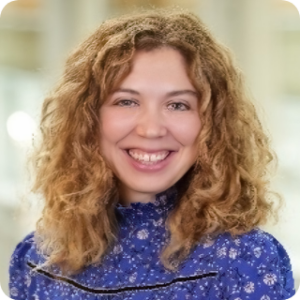 Dr. Emily K. Sims is an associate professor of Pediatrics at Indiana University School of Medicine where she also serves as the Assistant Director of the Wells Center for Pediatric Research and an Associate Director of the IU Medical Scientist Training Program. Dr. Sims is an NIH-funded physician scientist specializing in pediatric endocrinology with a research focus on identification of mechanisms and biomarkers of intrinsic beta cell dysfunction contributing to development of type 1 diabetes (T1D), clinical measurements of beta cell function that can be used to understand T1D heterogeneity and responses to disease-modifying therapies, and application of therapeutics aimed at improving beta cell health in T1D.
Dr. Emily K. Sims is an associate professor of Pediatrics at Indiana University School of Medicine where she also serves as the Assistant Director of the Wells Center for Pediatric Research and an Associate Director of the IU Medical Scientist Training Program. Dr. Sims is an NIH-funded physician scientist specializing in pediatric endocrinology with a research focus on identification of mechanisms and biomarkers of intrinsic beta cell dysfunction contributing to development of type 1 diabetes (T1D), clinical measurements of beta cell function that can be used to understand T1D heterogeneity and responses to disease-modifying therapies, and application of therapeutics aimed at improving beta cell health in T1D.
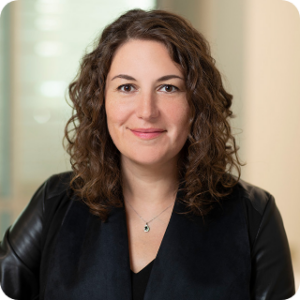 Dr. Teresa Mastracci is an associate professor in the Department of Biology at Indiana University Indianapolis. In 2017 she was named one of the top Ten Under 40 up & coming stars in Biopharma Research and Business by Genetic Engineering News and was recognized as one of the Indianapolis Business Journal’s Forty Under 40. She combines her interests in developmental biology and human disease by studying how cellular crosstalk between the exocrine and endocrine pancreas can influence organ development and function. In addition to the discovery of a new monogenic disease, recent publications from her lab have uncovered a regulatory role for mRNA translation in exocrine pancreas growth, beta cell maturation, and neuronal function.
Dr. Teresa Mastracci is an associate professor in the Department of Biology at Indiana University Indianapolis. In 2017 she was named one of the top Ten Under 40 up & coming stars in Biopharma Research and Business by Genetic Engineering News and was recognized as one of the Indianapolis Business Journal’s Forty Under 40. She combines her interests in developmental biology and human disease by studying how cellular crosstalk between the exocrine and endocrine pancreas can influence organ development and function. In addition to the discovery of a new monogenic disease, recent publications from her lab have uncovered a regulatory role for mRNA translation in exocrine pancreas growth, beta cell maturation, and neuronal function.
 Ben Giepmans is intrigued by how biomolecules act together to control cell fate in health and disease. He is a cell biologist and molecular biochemist/ microscopist in the department of Biomedical Science, UMC Groningen where he also leads the advanced microscopy & imaging center. The team develops and/or implements innovative imaging techniques and probes for large-scale and multimodal microscopy light- and electron microscopy in multiple research projects. Particular focus is on Islets of Langerhans to help to understand trigger(s) and potential new therapies for Type 1 diabetes.
Ben Giepmans is intrigued by how biomolecules act together to control cell fate in health and disease. He is a cell biologist and molecular biochemist/ microscopist in the department of Biomedical Science, UMC Groningen where he also leads the advanced microscopy & imaging center. The team develops and/or implements innovative imaging techniques and probes for large-scale and multimodal microscopy light- and electron microscopy in multiple research projects. Particular focus is on Islets of Langerhans to help to understand trigger(s) and potential new therapies for Type 1 diabetes.
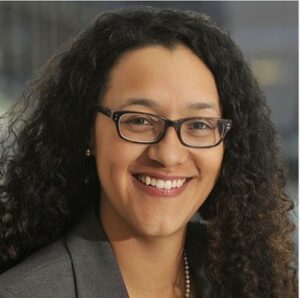 Dr. Maryaline Coffre is a Program Officer for The Leona M. and Harry B. Helmsley Charitable Trust’s Type 1 Diabetes (T1D) Program. She oversees a biomedical research grant portfolio that identifies and invests in promising therapies for T1D.
Dr. Maryaline Coffre is a Program Officer for The Leona M. and Harry B. Helmsley Charitable Trust’s Type 1 Diabetes (T1D) Program. She oversees a biomedical research grant portfolio that identifies and invests in promising therapies for T1D.
Prior to joining Helmsley, Maryaline was a research scientist at NYU Langone Health, where her research focused on the development and function of B cells. She has also conducted research at the Pasteur Institute, France,and at St. Jude Children’s Research Hospital among other institutions.
Maryaline earned a Ph.D. in immunology and a Master of Science in genetics from Paris Cité University, France.
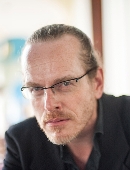 Trained as a physician and immunologist/virologist in Berlin, Boston, Paris and La Jolla, Dr. Homann has a long-standing interest in autoimmune and infectious disease, in particular the generation, maintenance, modulation, pathogenic potential and protective capacity of specific T cell immunity. Drawing on the
Trained as a physician and immunologist/virologist in Berlin, Boston, Paris and La Jolla, Dr. Homann has a long-standing interest in autoimmune and infectious disease, in particular the generation, maintenance, modulation, pathogenic potential and protective capacity of specific T cell immunity. Drawing on the
disciplines of immunology, microbiology, virology and pathology, his work employs an array of contemporary models and methodologies that seek to harness novel insights into the regulation of specific T cell immunity for the development of improved diagnostic, prophylactic and therapeutic modalities. Over the past decade, Dr. Homann has expanded his research program to encompass a broader context of pancreatic islet cell biology and histopathology in human T1D, and he has launched multiple collaborative efforts to better leverage complementary expert knowledge, unique technology access and more effective overall implementation of research strategies. At present, he is Professor of Medicine at the Icahn School of Medicine at Mount Sinai in New York, and in the spring of 2025 will join the University of Miami.
 Esther Latres, Ph.D., is Vice President of Research at Breakthrough T1D. In this role, Esther leads the strategic development of curative therapies for type 1 diabetes (T1D). Her work centers on enabling the translation of scientific discoveries into therapies to prevent or reverse autoimmunity, as well as cellular therapies that deliver insulin and restore the metabolic control in T1D. Additionally, her team leads the Early Detection research efforts in screening and monitoring to identify T1D before insulin is required. Prior to joining Breakthrough T1D in 2015, Esther developed her scientific career at Regeneron Pharmaceuticals, where she led discovery and research of therapeutic candidates to treat skeletal muscle and metabolic diseases, some of which have advanced into clinical trials. She is the author on numerous publications and co-inventor on several patents. Esther received a Ph.D. in biochemistry and molecular biology at the University of Barcelona and has received postdoctoral training and held research positions at Sloan-Kettering Cancer Center, Bristol-Myers Squibb Institute and New York University Medical Center.
Esther Latres, Ph.D., is Vice President of Research at Breakthrough T1D. In this role, Esther leads the strategic development of curative therapies for type 1 diabetes (T1D). Her work centers on enabling the translation of scientific discoveries into therapies to prevent or reverse autoimmunity, as well as cellular therapies that deliver insulin and restore the metabolic control in T1D. Additionally, her team leads the Early Detection research efforts in screening and monitoring to identify T1D before insulin is required. Prior to joining Breakthrough T1D in 2015, Esther developed her scientific career at Regeneron Pharmaceuticals, where she led discovery and research of therapeutic candidates to treat skeletal muscle and metabolic diseases, some of which have advanced into clinical trials. She is the author on numerous publications and co-inventor on several patents. Esther received a Ph.D. in biochemistry and molecular biology at the University of Barcelona and has received postdoctoral training and held research positions at Sloan-Kettering Cancer Center, Bristol-Myers Squibb Institute and New York University Medical Center.
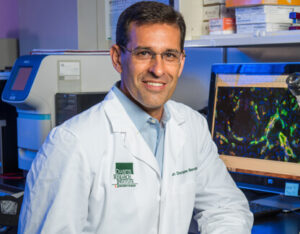 Dr. Juan Dominguez-Bendala is a professor of Surgery and Cell Biology at the Diabetes Research Institute of the University of Miami. The human pancreatic slice platform has been instrumental in advancing his research on pancreatic b-cell regeneration. In this context, his team has contributed seminal developments in long-term pancreatic slice culture, longitudinal, and functional assays. He is current Chair of the Human Pancreas Analysis Consortium (HPAC) of the Human Islet Research Network (HIRN)’s steering committee and the recipient of an Integrated Islet Distribution Program (IIDP). Dr. Dominguez-Bendala ‘s research sits at the crossroads between all these converging initiatives to foster team science in the T1D space.
Dr. Juan Dominguez-Bendala is a professor of Surgery and Cell Biology at the Diabetes Research Institute of the University of Miami. The human pancreatic slice platform has been instrumental in advancing his research on pancreatic b-cell regeneration. In this context, his team has contributed seminal developments in long-term pancreatic slice culture, longitudinal, and functional assays. He is current Chair of the Human Pancreas Analysis Consortium (HPAC) of the Human Islet Research Network (HIRN)’s steering committee and the recipient of an Integrated Islet Distribution Program (IIDP). Dr. Dominguez-Bendala ‘s research sits at the crossroads between all these converging initiatives to foster team science in the T1D space.
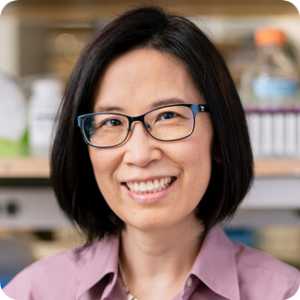 Dr. Qizhi Tang is a professor of immunology at the University of California, San Francisco (UCSF), affiliated with the Diabetes Center, the Department of Surgery, the Gladstone Institute of Genomic Immunology, and the Institute of Regenerative Medicine. Her research focuses on understanding regulatory T cell control of autoimmune diabetes and transplant rejection, aiming to translate basic mechanistic insights into novel therapies. Her therapeutic approaches include developing cellular engineering strategies to enhance the potency and lineage stability of human Tregs and optimizing beta cell replacement therapy for type 1 diabetes by improving islet survival and devising strategies to prevent immune rejection without systemic immunosuppression.
Dr. Qizhi Tang is a professor of immunology at the University of California, San Francisco (UCSF), affiliated with the Diabetes Center, the Department of Surgery, the Gladstone Institute of Genomic Immunology, and the Institute of Regenerative Medicine. Her research focuses on understanding regulatory T cell control of autoimmune diabetes and transplant rejection, aiming to translate basic mechanistic insights into novel therapies. Her therapeutic approaches include developing cellular engineering strategies to enhance the potency and lineage stability of human Tregs and optimizing beta cell replacement therapy for type 1 diabetes by improving islet survival and devising strategies to prevent immune rejection without systemic immunosuppression.
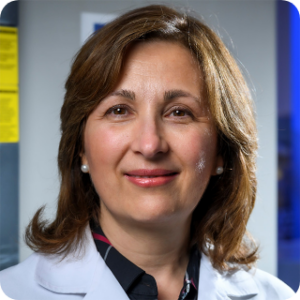 Dr. Redondo is a professor of Pediatrics at Baylor College of Medicine and a Pediatric Endocrinologist at Texas Children’s Hospital in Houston, Texas. She is actively involved in the NIDDK-funded Rare and Atypical Diabetes Network (RADIANT) and the American Diabetes Association’s Precision Medicine in Diabetes Initiative. Her research aims to dissect the heterogeneity of diabetes towards advancing precision medicine. Specifically, she seeks to incorporate genetic risk scores into predictive models for type 1 diabetes and utilize genetics to enhance the selection of candidates for prevention trials in type 1 diabetes. Dr. Redondo also focuses on leveraging genetics for timely and accurate diagnosis of diabetes types in children from diverse ancestral backgrounds, aiming to improve clinical outcomes.
Dr. Redondo is a professor of Pediatrics at Baylor College of Medicine and a Pediatric Endocrinologist at Texas Children’s Hospital in Houston, Texas. She is actively involved in the NIDDK-funded Rare and Atypical Diabetes Network (RADIANT) and the American Diabetes Association’s Precision Medicine in Diabetes Initiative. Her research aims to dissect the heterogeneity of diabetes towards advancing precision medicine. Specifically, she seeks to incorporate genetic risk scores into predictive models for type 1 diabetes and utilize genetics to enhance the selection of candidates for prevention trials in type 1 diabetes. Dr. Redondo also focuses on leveraging genetics for timely and accurate diagnosis of diabetes types in children from diverse ancestral backgrounds, aiming to improve clinical outcomes.
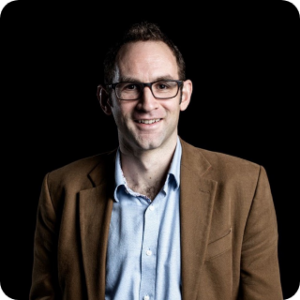 Dr. Richard Oram is an associate professor and a Diabetes UK Harry Keen Fellow, specializing in Type 1 diabetes at the Institute of Biomedical and Clinical Science and NIHR Exeter Clinical Research Facility. His research focuses on understanding the biology of beta cell loss in T1D and the clinical implications of persistent of beta cell function on complications. He sudies extremely early onset type 1 diabetes (EXET1D), diagnosed in children under 1 year old, aiming to uncover why autoimmunity can manifest so early in infants. He has also developed a cost-effective and straightforward method to assess genetic risk in type 1 diabetes – a T1D genetic risk score (T1D GRS). This is used as a diagnostic test to differentiate type 1, type 2 and monogenic diabetes, and also aids in predicting disease onset.
Dr. Richard Oram is an associate professor and a Diabetes UK Harry Keen Fellow, specializing in Type 1 diabetes at the Institute of Biomedical and Clinical Science and NIHR Exeter Clinical Research Facility. His research focuses on understanding the biology of beta cell loss in T1D and the clinical implications of persistent of beta cell function on complications. He sudies extremely early onset type 1 diabetes (EXET1D), diagnosed in children under 1 year old, aiming to uncover why autoimmunity can manifest so early in infants. He has also developed a cost-effective and straightforward method to assess genetic risk in type 1 diabetes – a T1D genetic risk score (T1D GRS). This is used as a diagnostic test to differentiate type 1, type 2 and monogenic diabetes, and also aids in predicting disease onset.
 Dr. Anna Casu is a medical doctor with clinical and laboratory research experience in type 1 diabetes.
Dr. Anna Casu is a medical doctor with clinical and laboratory research experience in type 1 diabetes.
Dr. Casu is an Associate Investigator at the Translational Research Institute at AdventHealth in Orlando, Florida, and Von Weller Family Chair in Type 1 Diabetes Research. Her current research interest focuses on the relationship between the exocrine and the endocrine pancreas, with an emphasis on circulating biomarkers, cell-to-cell interactions and the role of pancreatic stellate cells in type 1 diabetes. She is the Orlando investigator of the NCI-funded New-Onset Diabetes (NOD) study of the Chronic Pancreatitis Diabetes Pancreatic Cancer Consortium and co-investigator for the NIH/NIDDK funded Type 1 Diabetes in Acute Pancreatitis Consortium, where she serves as co-chair of the Immunology Working Group. She actively collaborates with AdventHealth gastroenterologists and surgeons specializing in caring for patients with disorders of the pancreas. She also contributes her expertise to several clinical trials investigating advanced technology and new treatments for type 1 diabetes.
Before joining the Translational Research Institute, she served as Unit Chief – Diabetes and Islet Transplantation at the University of Pittsburgh Medical Center transplant hospital in Italy and Clinical Assistant Professor of Medicine Department of Medicine, University of Pittsburgh, based in Palermo, Italy. While at Palermo, she led the diabetes unit and coordinated both the clinical and laboratory aspects of the islet transplantation program that performed the first islet transplant in Southern Italy. Her research was funded by the European Union.
Dr. Casu obtained her medical degree and completed her residency and fellowship in endocrinology at the University of Cagliari, Sardinia, (Italy) where the second-highest incidence of type 1 diabetes in the world occurs. This resulted in publications regarding the epidemiology of the disease and its preclinical stages. She then accepted a position as a Post-Doctoral Associate, followed by Research Associate, with the Department of Immunogenetics at the University of Pittsburgh. As a Juvenile Diabetes Research Foundation fellow recipient, she worked on identifying new prediction markers as well as on a pre-clinical islet xenotransplantation model for the cure of type 1 diabetes.
Dr. Casu has been living with type 1 diabetes for more than 40 years.
Invited Speakers
 Dr Gray is an Associate Research Scientist at the Columbia University Irving Medical Center. He earned his Ph.D from the University of Glasgow in 2019 where he studied the molecular mechanisms of tolerance in memory CD4 T cells in rheumatoid arthritis. In 2020, he joined the lab of Professor Donna Farber, where his research has since focused on the development of adaptive immunity across various mucosal and lymphoid tissue in early life. Specifically, he discovered that mucosal-associated lymphoid tissue (MALT) is a physiological adaptation in infant lungs and gut, and is currently dissecting the mechanisms of its formation, function, and regression throughout life.
Dr Gray is an Associate Research Scientist at the Columbia University Irving Medical Center. He earned his Ph.D from the University of Glasgow in 2019 where he studied the molecular mechanisms of tolerance in memory CD4 T cells in rheumatoid arthritis. In 2020, he joined the lab of Professor Donna Farber, where his research has since focused on the development of adaptive immunity across various mucosal and lymphoid tissue in early life. Specifically, he discovered that mucosal-associated lymphoid tissue (MALT) is a physiological adaptation in infant lungs and gut, and is currently dissecting the mechanisms of its formation, function, and regression throughout life.
Professor of Epidemiology, Health Informatics Institute at the University of South Florida
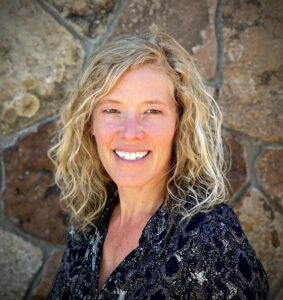 Kendra Vehik is an epidemiologist and applied biostatistician at the University of South Florida whose work is focused on understanding the potential initiators (genetic and early life exposures) involved in the appearance of islet autoantibodies and progression of type 1 diabetes. She is a collaborating investigator in many type 1 diabetes studies, including SEARCH, TEDDY, TrialNet, DPT-1, and DISCOVER studies. Dr. Vehik also serves as co-Chair of the TEDDY Publications and Presentation Committee and oversees the dissemination of scientific content for the TEDDY study.
Kendra Vehik is an epidemiologist and applied biostatistician at the University of South Florida whose work is focused on understanding the potential initiators (genetic and early life exposures) involved in the appearance of islet autoantibodies and progression of type 1 diabetes. She is a collaborating investigator in many type 1 diabetes studies, including SEARCH, TEDDY, TrialNet, DPT-1, and DISCOVER studies. Dr. Vehik also serves as co-Chair of the TEDDY Publications and Presentation Committee and oversees the dissemination of scientific content for the TEDDY study.
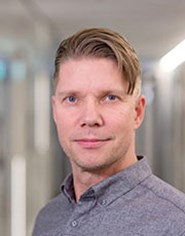 Ulf Ahlgren obtained a PhD in Medical Molecular biology at Umeå University, Sweden, in 1999, focusing on transcriptional regulation of endocrine cell differentiation in the pancreas. He obtained post-doctoral training at the Medical Research Council, Human Genetics Unit in Edinburgh, UK. His post-doctoral work focused on tissue interactions during development of the spleno-pancreatic region, and he contributed to the development of a novel imaging technology, optical projection tomography (OPT), which for the first time enabled mesoscopic imaging of mm-cm sized specimen with high molecular specificity and resolution. In 2002, he was recruited to Umeå Centre for Molecular Medicine UmU on a tenure track position, and he also received an Assistant Professorship position from the Swedish Research Council. In 2006, he became Associate Professor (Docent) in Medical Developmental Biology during which time his group presented the first 3D data sets of the complete b-cell distribution of the rodent pancreas. In 2011 he obtained a professorship in Medical Molecular Medicine at UCMM (now the Dept. of Medical and Translational Biology). At Umeå University, his lab pioneered the development/optimization of optical 3D imaging techniques for studies of the pancreas and, over the years the lab has presented novel information regarding aspects of pancreas biology ranging from normal pancreatic development and anatomy to e.g., disturbed proliferation, destruction, neogenesis, preservation and cellar re-programming of pancreatic cell-types. Based on such 3D data of the pancreas, his lab recently contributed the chapter on “the Pancreas” in the leading atlas of mouse anatomy. Today, the lab develops and implements approaches for mesoscopic 3D imaging to study the human pancreas, in health and disease, to better understand its anatomy/pathophysiology on an unprecedented scale at the acquired resolution. This recently included the very first presentation of the complete islet distribution across the organ, in 3D and at a microscopic resolution, as well as new details on the islet’s cellularity.
Ulf Ahlgren obtained a PhD in Medical Molecular biology at Umeå University, Sweden, in 1999, focusing on transcriptional regulation of endocrine cell differentiation in the pancreas. He obtained post-doctoral training at the Medical Research Council, Human Genetics Unit in Edinburgh, UK. His post-doctoral work focused on tissue interactions during development of the spleno-pancreatic region, and he contributed to the development of a novel imaging technology, optical projection tomography (OPT), which for the first time enabled mesoscopic imaging of mm-cm sized specimen with high molecular specificity and resolution. In 2002, he was recruited to Umeå Centre for Molecular Medicine UmU on a tenure track position, and he also received an Assistant Professorship position from the Swedish Research Council. In 2006, he became Associate Professor (Docent) in Medical Developmental Biology during which time his group presented the first 3D data sets of the complete b-cell distribution of the rodent pancreas. In 2011 he obtained a professorship in Medical Molecular Medicine at UCMM (now the Dept. of Medical and Translational Biology). At Umeå University, his lab pioneered the development/optimization of optical 3D imaging techniques for studies of the pancreas and, over the years the lab has presented novel information regarding aspects of pancreas biology ranging from normal pancreatic development and anatomy to e.g., disturbed proliferation, destruction, neogenesis, preservation and cellar re-programming of pancreatic cell-types. Based on such 3D data of the pancreas, his lab recently contributed the chapter on “the Pancreas” in the leading atlas of mouse anatomy. Today, the lab develops and implements approaches for mesoscopic 3D imaging to study the human pancreas, in health and disease, to better understand its anatomy/pathophysiology on an unprecedented scale at the acquired resolution. This recently included the very first presentation of the complete islet distribution across the organ, in 3D and at a microscopic resolution, as well as new details on the islet’s cellularity.
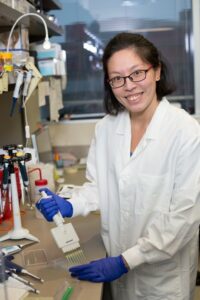 Dr. Yi-Chun Chen (YCC) is an assistant professor at the University of Saskatchewan in Canada. Studies in her new laboratory focus on the biosynthesis, processing, and clearance of islet peptide hormones. YCC is passionate about teaching and mentoring the next generation of scientists and is currently recruiting graduate students and postdoctoral fellows.
Dr. Yi-Chun Chen (YCC) is an assistant professor at the University of Saskatchewan in Canada. Studies in her new laboratory focus on the biosynthesis, processing, and clearance of islet peptide hormones. YCC is passionate about teaching and mentoring the next generation of scientists and is currently recruiting graduate students and postdoctoral fellows.
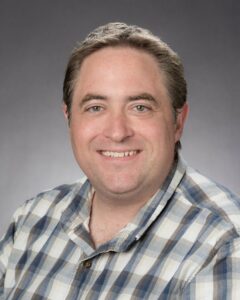 Dr. James completed his PhD in biochemical engineering at Washington State University and then joined the Benaroya Research Institute to manage their tetramer core. He now leads a research lab with a focus on investigating the role of antigen specific T cells in disease and crosstalk between immune cells and target tissue. His interests include understanding how cellular stress contributes to neo-epitope formation, breakdown of tolerance, and diminished beta cell function. He also co-leads projects aimed at validating biomarkers to characterize T cells in at-risk individuals and clinical trial participants through sensitive immunological assays using peripheral blood.
Dr. James completed his PhD in biochemical engineering at Washington State University and then joined the Benaroya Research Institute to manage their tetramer core. He now leads a research lab with a focus on investigating the role of antigen specific T cells in disease and crosstalk between immune cells and target tissue. His interests include understanding how cellular stress contributes to neo-epitope formation, breakdown of tolerance, and diminished beta cell function. He also co-leads projects aimed at validating biomarkers to characterize T cells in at-risk individuals and clinical trial participants through sensitive immunological assays using peripheral blood.
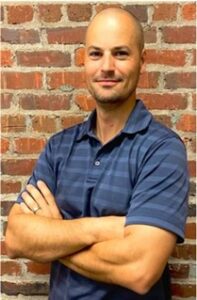 Dr. Jonathan Campbell is an Associate Professor of Medicine at Duke University. He has applied his expertise in basic science to uncover novel mechanism of metabolic homeostasis, with a particular focus on islet biology and incretin receptor pharmacology. His group defined alpha- to beta-cell communication, an axis where proglucagon peptides from alpha-cells control the tone of beta-cell function. This has led to additional discoveries including how the incretin hormone GIP controls postprandial metabolism through actions in both alpha- and beta-cells, that tirzepatide signals predominantly through the GIP receptor in human islets, and how cAMP signaling downstream of the incretin receptors is essential for beta-cell function. This work is done in preclinical models including cell-based assays and mouse models, and translated through physiological studies in humans.
Dr. Jonathan Campbell is an Associate Professor of Medicine at Duke University. He has applied his expertise in basic science to uncover novel mechanism of metabolic homeostasis, with a particular focus on islet biology and incretin receptor pharmacology. His group defined alpha- to beta-cell communication, an axis where proglucagon peptides from alpha-cells control the tone of beta-cell function. This has led to additional discoveries including how the incretin hormone GIP controls postprandial metabolism through actions in both alpha- and beta-cells, that tirzepatide signals predominantly through the GIP receptor in human islets, and how cAMP signaling downstream of the incretin receptors is essential for beta-cell function. This work is done in preclinical models including cell-based assays and mouse models, and translated through physiological studies in humans.
 Jeffrey Krischer is Distinguished University Health Professor, Associate Chair for research of the Department of Internal Medicine, Morsani College of Medicine and Director of the Health Informatics Institute of the University of South Florida. He leads clinical and research programs exploring the pathogenesis and prevention of type 1 diabetes, rare and atypical forms of diabetes and many rare diseases.
Jeffrey Krischer is Distinguished University Health Professor, Associate Chair for research of the Department of Internal Medicine, Morsani College of Medicine and Director of the Health Informatics Institute of the University of South Florida. He leads clinical and research programs exploring the pathogenesis and prevention of type 1 diabetes, rare and atypical forms of diabetes and many rare diseases.
Dr. Krischer received his Ph. D. from Harvard University and an MD honoris causa from Lund University, Sweden. His current research focuses primarily on the design, conduct and analysis of multi-institutional clinical trials, the epidemiology of autoimmune disorders, and genotype-phenotype studies in rare diseases. Dr. Krischer is the author of more than 500 scientific papers.
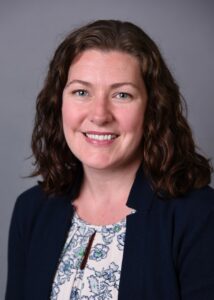 Dr. Amelia Linnemann is a tenured Associate Professor in the Department of Pediatrics at Indiana University School of Medicine (IUSM) in Indianapolis, IN. She is a member of both the Herman B Wells Center for Pediatric Research and the National Institutes of Health-funded Indiana Center for Diabetes and Metabolic Diseases (CDMD). She is the director of the CDMD Microscopy Core and the Associate Director of Pipeline Program Development at IUSM. Research in Dr. Linnemann’s laboratory is focused on the study of the insulin-producing pancreatic beta-cells under conditions of inflammatory stress. Dr. Linnemann is particularly interested in how higher-level metabolic signals contribute to molecular crosstalk within the islet and influence beta-cell adaptation to stress, specifically through studies focused on autophagy and the antioxidant response. Her team uses cutting-edge imaging approaches to study these pathways and has developed a series of novel tools for use with intravital microscopy.
Dr. Amelia Linnemann is a tenured Associate Professor in the Department of Pediatrics at Indiana University School of Medicine (IUSM) in Indianapolis, IN. She is a member of both the Herman B Wells Center for Pediatric Research and the National Institutes of Health-funded Indiana Center for Diabetes and Metabolic Diseases (CDMD). She is the director of the CDMD Microscopy Core and the Associate Director of Pipeline Program Development at IUSM. Research in Dr. Linnemann’s laboratory is focused on the study of the insulin-producing pancreatic beta-cells under conditions of inflammatory stress. Dr. Linnemann is particularly interested in how higher-level metabolic signals contribute to molecular crosstalk within the islet and influence beta-cell adaptation to stress, specifically through studies focused on autophagy and the antioxidant response. Her team uses cutting-edge imaging approaches to study these pathways and has developed a series of novel tools for use with intravital microscopy.
 Jessica Dunne, Ph.D., is a seasoned pharmaceutical and biotech professional with over two decades of experience in the industry. She currently serves as a Medical Director Sanofi US, where she leads strategies for implementing nationwide T1D screening programs. Dr. Dunne’s career has been focused on T1D research and prevention. She has previously held positions at Novo Nordisk, Janssen Research & Development, and JDRF. Throughout her career, Dr. Dunne has demonstrated strong leadership skills, managed cross-functional teams and driving scientific strategies. She has been instrumental in developing screening initiatives, managing clinical trials, and fostering partnerships between academia and industry.
Jessica Dunne, Ph.D., is a seasoned pharmaceutical and biotech professional with over two decades of experience in the industry. She currently serves as a Medical Director Sanofi US, where she leads strategies for implementing nationwide T1D screening programs. Dr. Dunne’s career has been focused on T1D research and prevention. She has previously held positions at Novo Nordisk, Janssen Research & Development, and JDRF. Throughout her career, Dr. Dunne has demonstrated strong leadership skills, managed cross-functional teams and driving scientific strategies. She has been instrumental in developing screening initiatives, managing clinical trials, and fostering partnerships between academia and industry.
Dr. Dunne holds a Ph.D. in Biomedical Engineering from the University of Virginia and a Bachelor of Science in Biomedical Engineering from Johns Hopkins University.
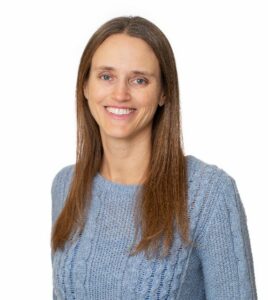 Dr. Melena Bellin is a physician-scientist and tenured Professor in the Department of Pediatrics, Division of Endocrinology, and the Department of Surgery at the University of Minnesota. Her research focuses on pancreatitis and on cell therapy for patients with type 1 diabetes and surgical diabetes. She has been an innovator in the field of total pancreatectomy with islet autotransplantation (TPIAT), including leading 4 randomized clinical trials of novel therapies to improve islet engraftment after TPIAT, defining long-term outcomes after TPIAT, and advancing TPIAT as a treatment option for children with hereditary pancreatitis. She is a site PI for the University of Minnesota in the Chronic Pancreatitis Diabetes Pancreatic Cancer Consortium and the Type 1 Diabetes Acute Pancreatitis Consortium which she also Co-Chairs. She has been the PI on 4-R01 and 2- U01 grants focused on TPIAT or pancreatitis. She has also been an Investigator in multiple clinical trials of alloislet transplantation for type 1 diabetes, including the Clinical Islet Transplant Consortium studies, and in novel phase I/II studies of stem cell-derived islet products. She has approximately 200 peer-reviewed publications in the field.
Dr. Melena Bellin is a physician-scientist and tenured Professor in the Department of Pediatrics, Division of Endocrinology, and the Department of Surgery at the University of Minnesota. Her research focuses on pancreatitis and on cell therapy for patients with type 1 diabetes and surgical diabetes. She has been an innovator in the field of total pancreatectomy with islet autotransplantation (TPIAT), including leading 4 randomized clinical trials of novel therapies to improve islet engraftment after TPIAT, defining long-term outcomes after TPIAT, and advancing TPIAT as a treatment option for children with hereditary pancreatitis. She is a site PI for the University of Minnesota in the Chronic Pancreatitis Diabetes Pancreatic Cancer Consortium and the Type 1 Diabetes Acute Pancreatitis Consortium which she also Co-Chairs. She has been the PI on 4-R01 and 2- U01 grants focused on TPIAT or pancreatitis. She has also been an Investigator in multiple clinical trials of alloislet transplantation for type 1 diabetes, including the Clinical Islet Transplant Consortium studies, and in novel phase I/II studies of stem cell-derived islet products. She has approximately 200 peer-reviewed publications in the field.
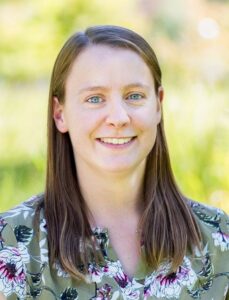 Dr. Nikki Farnsworth is an Assistant Professor of Chemical and Biological Engineering at the Colorado School of Mines. She is also Affiliate Member and Adjunct Assistant Professor at the Barbara Davis Center for Diabetes at the Anschutz Medical Campus. Prior to joining the Mines faculty, she completed her postdoctoral training at the Barbara Davis Center for Diabetes in the Bioengineering and Pediatrics department under Dr. Richard Benninger, working at the intersection of cell biology, diabetes, and biophysics. Dr. Farnsworth completed her Ph.D. and M.S. degrees in Chemical and Biological Engineering at the University of Colorado Boulder. She completed her B.S. in Chemical Engineering at Rensselaer Polytechnic Institute. Breakthrough T1D, the Federation for Diabetes Research, the American Diabetes Association, the NIH NIDDK, the NIH Diabetes Research Center, and the Helmsley Charitable Trust George Eisenbarth Award from nPOD currently fund her lab.
Dr. Nikki Farnsworth is an Assistant Professor of Chemical and Biological Engineering at the Colorado School of Mines. She is also Affiliate Member and Adjunct Assistant Professor at the Barbara Davis Center for Diabetes at the Anschutz Medical Campus. Prior to joining the Mines faculty, she completed her postdoctoral training at the Barbara Davis Center for Diabetes in the Bioengineering and Pediatrics department under Dr. Richard Benninger, working at the intersection of cell biology, diabetes, and biophysics. Dr. Farnsworth completed her Ph.D. and M.S. degrees in Chemical and Biological Engineering at the University of Colorado Boulder. She completed her B.S. in Chemical Engineering at Rensselaer Polytechnic Institute. Breakthrough T1D, the Federation for Diabetes Research, the American Diabetes Association, the NIH NIDDK, the NIH Diabetes Research Center, and the Helmsley Charitable Trust George Eisenbarth Award from nPOD currently fund her lab.
Herb Gaisano is Professor of Medicine and Physiology at the University of Toronto, who has been studying both the exocrine pancreas and endocrine pancreas using human and mouse pancreas slices using high resolution live-cell imaging. His long-term focus and contribution have been on SNARE proteins and how they mediate pathologic exocytosis and autophagy in pancreatitis, and what SNARE protein roles are in the various steps on insulin granule exocytosis. He has now moved on from that to other areas that he will be showing today.
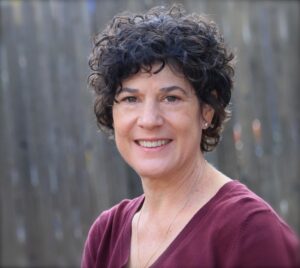 Dr. Lori Sussel is a Professor of Pediatrics and Cell & Developmental Biology at the University of Colorado Anschutz Medical Center. She also serves as the Research Director of the Barbara Davis Diabetes Center (BDC) and Director of the NIH-funded University of Colorado Diabetes Research Center. Research in the Sussel lab is focused on understanding how transcription factors and RNA molecules regulate pancreatic islet development and function; these studies helped provide the foundation for the differentiation of insulin-producing beta cells from human ES cells. She has also identified the importance of maintaining beta-cell maturation and identity in the adult during physiological and pathophysiological conditions. Overall, Lori’s research has contributed significantly to understanding of the development and function of pancreatic islet cells, as well as how beta cells are targeted in type 1 diabetes. As BDC Research Director, Dr. Sussel has also established an internationally recognized interdisciplinary research division focusing on all aspects of T1D research and discovery.
Dr. Lori Sussel is a Professor of Pediatrics and Cell & Developmental Biology at the University of Colorado Anschutz Medical Center. She also serves as the Research Director of the Barbara Davis Diabetes Center (BDC) and Director of the NIH-funded University of Colorado Diabetes Research Center. Research in the Sussel lab is focused on understanding how transcription factors and RNA molecules regulate pancreatic islet development and function; these studies helped provide the foundation for the differentiation of insulin-producing beta cells from human ES cells. She has also identified the importance of maintaining beta-cell maturation and identity in the adult during physiological and pathophysiological conditions. Overall, Lori’s research has contributed significantly to understanding of the development and function of pancreatic islet cells, as well as how beta cells are targeted in type 1 diabetes. As BDC Research Director, Dr. Sussel has also established an internationally recognized interdisciplinary research division focusing on all aspects of T1D research and discovery.
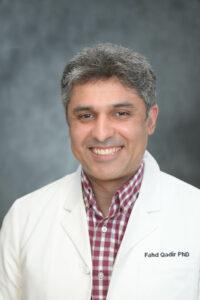 Fahd Qadir is a computational and systems biologist who studies the genetic and regulatory architecture of sex steroid receptor action and sex chromosomes in pancreatic islet cells. He is a postdoctoral fellow at Tulane University School of Medicine in New Orleans, working with Dr. Franck Mauvais-Jarvis. Fahd holds a DVM and MS from the National University of Sciences and Technology in Pakistan, and a PhD in Molecular Cell and Developmental Biology from the University of Miami. During his PhD Fahd worked on the characterization of ALK3+ pancreatic progenitor-like cells in the adult human pancreas, under the mentorship of Dr. Juan Dominguez-Bendala.
Fahd Qadir is a computational and systems biologist who studies the genetic and regulatory architecture of sex steroid receptor action and sex chromosomes in pancreatic islet cells. He is a postdoctoral fellow at Tulane University School of Medicine in New Orleans, working with Dr. Franck Mauvais-Jarvis. Fahd holds a DVM and MS from the National University of Sciences and Technology in Pakistan, and a PhD in Molecular Cell and Developmental Biology from the University of Miami. During his PhD Fahd worked on the characterization of ALK3+ pancreatic progenitor-like cells in the adult human pancreas, under the mentorship of Dr. Juan Dominguez-Bendala.
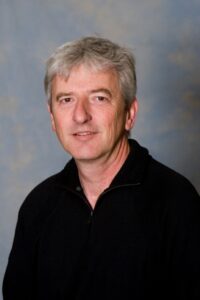 Dr. Hughes is a Chancellor’s Professor in the Departments of Molecular Biology & Biochemistry and Biomedical Engineering at UC Irvine. His recent appointments have included Department Chair, Director of the Edwards Lifesciences Center for Advanced Cardiovascular Technology, and co-director of the Onco-Imaging and Biotechnology (OIB) Program, part of the Chao Family Comprehensive Cancer Center at UCI. The work in his lab spans multiple scales – from understanding the basic molecular mechanisms of angiogenesis (the growth of new blood vessels), to engineering of artificial tissues. Recently his lab has been pioneering “Body-on-Chip” technology, which allows for human micro-organs – heart, pancreas, tumor, etc. – to be grown in the lab with their own blood vessel network. The technology is being commercialized through Aracari Biosciences, a local biotech company launched by Dr. Hughes in 2019.
Dr. Hughes is a Chancellor’s Professor in the Departments of Molecular Biology & Biochemistry and Biomedical Engineering at UC Irvine. His recent appointments have included Department Chair, Director of the Edwards Lifesciences Center for Advanced Cardiovascular Technology, and co-director of the Onco-Imaging and Biotechnology (OIB) Program, part of the Chao Family Comprehensive Cancer Center at UCI. The work in his lab spans multiple scales – from understanding the basic molecular mechanisms of angiogenesis (the growth of new blood vessels), to engineering of artificial tissues. Recently his lab has been pioneering “Body-on-Chip” technology, which allows for human micro-organs – heart, pancreas, tumor, etc. – to be grown in the lab with their own blood vessel network. The technology is being commercialized through Aracari Biosciences, a local biotech company launched by Dr. Hughes in 2019.
Professor Hughes has published over 100 peer-reviewed research manuscripts, and in recognition of his outstanding research and publication record he was elected a Fellow of the American Association for the Advancement of Science (AAAS) in 2014. In addition to his research, Professor Hughes works extensively with the non-profit organization, cureHHT, which provides patient support and research advocacy on behalf of those suffering from the rare vascular disorder Hereditary Hemorrhagic Telangiectasia. Professor Hughes serves as Chair of the foundation’s North American Scientific and Medical Advisory Council.
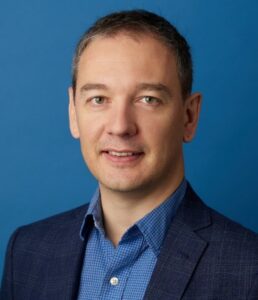 Dr. Remi Creusot is an Associate Professor of Medical Sciences in the Department of Medicine and Principal Investigator at the Columbia Center for Translational Immunology and the Naomi Berrie Diabetes Center. Dr. Creusot received his PhD in Immunology from University College London. He subsequently trained at Stanford University, in the Department of Medicine, Division of Immunology and Rheumatology. Dr. Creusot’s research is primarily focused on antigen-specific tolerance in Type 1 diabetes and immunotherapy. His group investigates (1) the role and therapeutic potential of various cell types that can serve as antigen-presenting cells, (2) T cell recognition of beta-cell antigens in human systems, and (3) novel therapeutic strategies aimed at restoring antigen-specific tolerance and blocking autoimmunity.
Dr. Remi Creusot is an Associate Professor of Medical Sciences in the Department of Medicine and Principal Investigator at the Columbia Center for Translational Immunology and the Naomi Berrie Diabetes Center. Dr. Creusot received his PhD in Immunology from University College London. He subsequently trained at Stanford University, in the Department of Medicine, Division of Immunology and Rheumatology. Dr. Creusot’s research is primarily focused on antigen-specific tolerance in Type 1 diabetes and immunotherapy. His group investigates (1) the role and therapeutic potential of various cell types that can serve as antigen-presenting cells, (2) T cell recognition of beta-cell antigens in human systems, and (3) novel therapeutic strategies aimed at restoring antigen-specific tolerance and blocking autoimmunity.
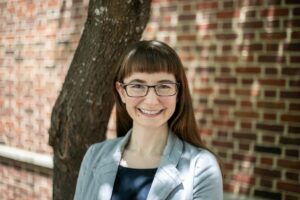 Dr. Rebecca Pompano is an Associate Professor in the Departments of Chemistry and Biomedical Engineering at the University of Virginia, and a member of the Beirne Carter Center for Immunology Research. Her research focuses on developing organ-on-chip and bioanalytical tools to analyze lymph node function after vaccination and during inflammatory disease. She has received a number of awards including a 2022 Gordon and Betty Moore Inventor Fellowship and 2023 UVA Shannon Center Mid-Career Fellowship. She co-chaired the inaugural Gordon Research Conference for Immunoengineering (2022) and the 2023 International Symposium on Microscale Separations and Bioanalysis, and currently is the Treasurer of the Chemical and Biological Microsystems Society. She completed a BS in Chemistry at the University of Richmond and a PhD at the University of Chicago. Prof. Pompano is an advocate for inclusive environments in STEM, both in research and in the classroom. Additional information about her research group and their work is available at www.pompanolab.com.
Dr. Rebecca Pompano is an Associate Professor in the Departments of Chemistry and Biomedical Engineering at the University of Virginia, and a member of the Beirne Carter Center for Immunology Research. Her research focuses on developing organ-on-chip and bioanalytical tools to analyze lymph node function after vaccination and during inflammatory disease. She has received a number of awards including a 2022 Gordon and Betty Moore Inventor Fellowship and 2023 UVA Shannon Center Mid-Career Fellowship. She co-chaired the inaugural Gordon Research Conference for Immunoengineering (2022) and the 2023 International Symposium on Microscale Separations and Bioanalysis, and currently is the Treasurer of the Chemical and Biological Microsystems Society. She completed a BS in Chemistry at the University of Richmond and a PhD at the University of Chicago. Prof. Pompano is an advocate for inclusive environments in STEM, both in research and in the classroom. Additional information about her research group and their work is available at www.pompanolab.com.
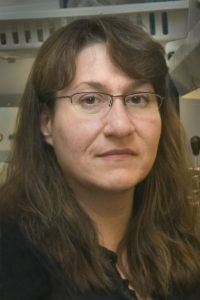
Sally C. Kent, Ph.D. is an Associate Professor of Medicine and The George F. and Sybil H. Fuller Term Chair in Diabetes in the Diabetes Center of Excellence at the University of Massachusetts Chan Medical School, Worcester, MA. She has a long-standing interest in autoreactive T cell specificity and function in human type 1 diabetes (T1D) especially from tissue proximal (pancreatic draining lymph nodes and directly from islets of donors) to the pathology in T1D. She has been an investigator with nPOD since 2007.
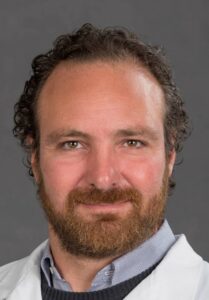 Paolo Serafini is an Associate Professor in the Department of Microbiology and Immunology at the University of Miami. He is an immunologist interested in the pathways that regulate immune tolerance in Type 1 Diabetes and immuno-oncology. He participated in the discovery of Myeloid Derived Suppressor Cells (MDSC) and in elucidating many of the mechanisms by which MDSC suppress the immune response and induce tolerance. His laboratory specialized in the last years in the development of targeted RNA therapeutics and aptamers that allow the targeted modulation of the desired gene in vivo in β cells and different leukocyte subsets. In Type 1 Diabetes, these targeted technologies aims to increase β cell mass and promote the exhaustion or deletion of autoreactive T cells. Dr. Serafini is the scientific founder of two start-up companies to transform his lab discovery and technology in new drugs that can benefit patients.
Paolo Serafini is an Associate Professor in the Department of Microbiology and Immunology at the University of Miami. He is an immunologist interested in the pathways that regulate immune tolerance in Type 1 Diabetes and immuno-oncology. He participated in the discovery of Myeloid Derived Suppressor Cells (MDSC) and in elucidating many of the mechanisms by which MDSC suppress the immune response and induce tolerance. His laboratory specialized in the last years in the development of targeted RNA therapeutics and aptamers that allow the targeted modulation of the desired gene in vivo in β cells and different leukocyte subsets. In Type 1 Diabetes, these targeted technologies aims to increase β cell mass and promote the exhaustion or deletion of autoreactive T cells. Dr. Serafini is the scientific founder of two start-up companies to transform his lab discovery and technology in new drugs that can benefit patients.
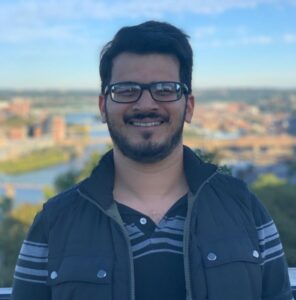 Alok Joglekar completed his Ph.D. at the University of California, Los Angeles under the guidance of Dr. Donald B. Kohn, where he focused on gene therapy using site-specific nucleases. Upon graduating, Dr. Joglekar completed his postdoctoral research at California Institute of Technology in Dr. David Baltimore’s lab, focusing initially on the role of T cells in natural control of HIV infection. While in the Baltimore lab, he began working on cell engineering using chimeric receptors and created a cell-based T cell epitope discovery method. In 2019, Dr. Joglekar started his lab at the Center for Systems Immunology and the Department of Immunology at the University of Pittsburgh, where he focuses on understanding T cell mediated immune responses using systems approaches and creative engineering. The Joglekar lab has published experimental and computational approaches to identify T cell antigens in Type 1 Diabetes. Ongoing work in the lab is expanding these approaches to other autoimmune disorders as well as investigating novel cellular therapies for Type 1 Diabetes.
Alok Joglekar completed his Ph.D. at the University of California, Los Angeles under the guidance of Dr. Donald B. Kohn, where he focused on gene therapy using site-specific nucleases. Upon graduating, Dr. Joglekar completed his postdoctoral research at California Institute of Technology in Dr. David Baltimore’s lab, focusing initially on the role of T cells in natural control of HIV infection. While in the Baltimore lab, he began working on cell engineering using chimeric receptors and created a cell-based T cell epitope discovery method. In 2019, Dr. Joglekar started his lab at the Center for Systems Immunology and the Department of Immunology at the University of Pittsburgh, where he focuses on understanding T cell mediated immune responses using systems approaches and creative engineering. The Joglekar lab has published experimental and computational approaches to identify T cell antigens in Type 1 Diabetes. Ongoing work in the lab is expanding these approaches to other autoimmune disorders as well as investigating novel cellular therapies for Type 1 Diabetes.
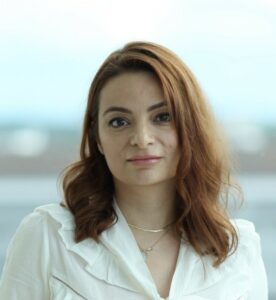 Feyza Engin, Ph.D., is an Associate Professor at the University of Wisconsin-Madison, School of Medicine and Public Health. Dr. Engin obtained her Pharmacy and Master’s degrees from the Istanbul University School of Pharmacy. She received her Ph.D. degree in Molecular and Human Genetics from Baylor College of Medicine and completed her postdoctoral studies on Molecular Metabolism at Harvard University. Her postdoctoral work using pharmacological and genetic approaches provided the first direct link between beta cell ER stress and type1 diabetes (T1D) in preclinical models.
Feyza Engin, Ph.D., is an Associate Professor at the University of Wisconsin-Madison, School of Medicine and Public Health. Dr. Engin obtained her Pharmacy and Master’s degrees from the Istanbul University School of Pharmacy. She received her Ph.D. degree in Molecular and Human Genetics from Baylor College of Medicine and completed her postdoctoral studies on Molecular Metabolism at Harvard University. Her postdoctoral work using pharmacological and genetic approaches provided the first direct link between beta cell ER stress and type1 diabetes (T1D) in preclinical models.
Over the past 10 years, studies from her lab focused on dissecting the function of the specific unfolded protein response (UPR) mediators in beta cells in T1D. Specifically, work from her lab demonstrated that during early stages of disease stress-induced transient dedifferentiation of beta cells could alter the diabetogenic activity of immune cells and protect NOD mice against T1D. In a follow-up study, they showed that under chronic stress conditions beta cells undergo transcriptional and translational reprogramming that induce a high degree of adaptive plasticity. Her laboratory’s recent work provided the first evidence for heterogeneity of beta cell senescence in T1D and induction of an immunosurveillance program triggered by beta cell UPR-deficiency in NOD mice. Dr. Engin’s current research focuses on identifying the role of beta cell stress responses, organelle dysfunction, and beta cell-immune cell crosstalk in T1D pathogenesis. She is the recipient of prestigious awards including NIH K01 award, Breakthrough T1D Career Development Award, and Shaw Scientist Award, among others.
 Åke Lernmark has worked on type 1 diabetes etiology and pathogenesis since his Doctorate in Medicine (PhD) at Umeå University (1971) followed by research at the University of Chicago with the late Donald F. Steiner. He was director of research for the Hagedorn Research Laboratory and has had professorships and laboratories at the University of Washington in Seattle, WA and the Karolinska Institutet in Stockholm, Sweden. As a senior professor at Lund University in Sweden since 2009 his research is primarily focused on the genetic and environmental aetiology of beta cell autoimmunity and is the PI for The Environmental Determinants of Diabetes in the Young (TEDDY) site in Sweden. He and his colleagues described HLA DQ (1983) and the 64K protein (1981) (aka GAD65 1991) as the first autoantigen as well as the in vitro transcription translation radio binding assay (1992); still a gold standard to detect autoantibodies. An autoantibody first appearing against either insulin, GAD65, IA-2 or ZnT8 transporter is the first primary endpoint in the TEDDY study that have followed HLA DQ high-risk children from birth until 15 years of age. Omics analyses are used by the TEDDY study consortium to identify the mechanism by which exposure triggers autoimmunity against specific beta-cell proteins.
Åke Lernmark has worked on type 1 diabetes etiology and pathogenesis since his Doctorate in Medicine (PhD) at Umeå University (1971) followed by research at the University of Chicago with the late Donald F. Steiner. He was director of research for the Hagedorn Research Laboratory and has had professorships and laboratories at the University of Washington in Seattle, WA and the Karolinska Institutet in Stockholm, Sweden. As a senior professor at Lund University in Sweden since 2009 his research is primarily focused on the genetic and environmental aetiology of beta cell autoimmunity and is the PI for The Environmental Determinants of Diabetes in the Young (TEDDY) site in Sweden. He and his colleagues described HLA DQ (1983) and the 64K protein (1981) (aka GAD65 1991) as the first autoantigen as well as the in vitro transcription translation radio binding assay (1992); still a gold standard to detect autoantibodies. An autoantibody first appearing against either insulin, GAD65, IA-2 or ZnT8 transporter is the first primary endpoint in the TEDDY study that have followed HLA DQ high-risk children from birth until 15 years of age. Omics analyses are used by the TEDDY study consortium to identify the mechanism by which exposure triggers autoimmunity against specific beta-cell proteins.
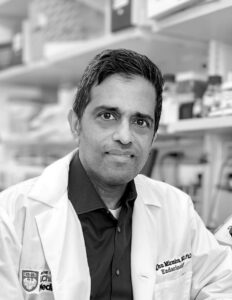 Dr. Raghu Mirmira obtained his MD-PhD degrees at the University of Chicago. During his PhD training, he studied insulin-receptor interactions. His work during this time set the foundation for the development of ultra-rapid- and ultra-long-acting insulins that are widely in use today. Raghu subsequently completed his residency in Internal Medicine and subspecialty training in Diabetes and Endocrinology at the University of California at San Francisco. Raghu’s work in the early 2000s introduced the concept that chromatin states in beta-cells govern the transcriptional responses that regulate their glucose sensing and insulin secretory phenotypes.
Dr. Raghu Mirmira obtained his MD-PhD degrees at the University of Chicago. During his PhD training, he studied insulin-receptor interactions. His work during this time set the foundation for the development of ultra-rapid- and ultra-long-acting insulins that are widely in use today. Raghu subsequently completed his residency in Internal Medicine and subspecialty training in Diabetes and Endocrinology at the University of California at San Francisco. Raghu’s work in the early 2000s introduced the concept that chromatin states in beta-cells govern the transcriptional responses that regulate their glucose sensing and insulin secretory phenotypes.
His subsequent work linked these transcriptional responses to mRNA translation through the metabolism of polyamines. His recent research has advanced these concepts to disease pathogenesis, heralded by studies proposing that the molecular response of beta-cells to inflammatory signals initiates the autoimmune reaction in type 1 diabetes (T1D). Raghu has extended his research to study the interaction between beta-cells and macrophages in diabetes, and he specifically defined the contribution of pathways mediated by polyamines, 12-lipoxygenase, and PERK in T1D pathogenesis. Raghu’s larger impact includes leading the first-ever NIH-funded MD-PhD program (MSTP) at Indiana, leading two separate diabetes centers (Indiana and Chicago) to NIH funding, and training a generation of physician-scientists who have achieved academic leadership and NIH funding. Raghu was awarded the 2023 Albert Renold Award from the American Diabetes Association.
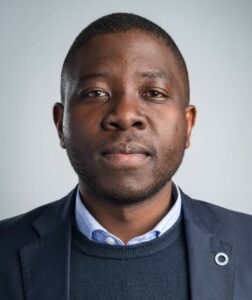 Dr Katte is a Research Fellow in Global Health Diabetes at the NIHR Exeter Biomedical Research Centre (BRC) at the University of Exeter, where he holds a Translational Fellowship. His research focuses on understanding the heterogeneity in the presentation of type 1 diabetes in African and other minority populations. He holds a visiting academic position at the Diabetes and Metabolism Lab at the University of Bristol, researching unrecognised/novel islet autoantibody markers for type 1 diabetes in native Africans. He is also a consultant research physician for the type 1 diabetes management programme, Changing Diabetes in Children (CDiC) in Cameroon. He holds a Doctor of Medicine (MD) degree from the University of Yaoundé 1, Cameroon, and PhD from the University of Exeter, United Kingdom.
Dr Katte is a Research Fellow in Global Health Diabetes at the NIHR Exeter Biomedical Research Centre (BRC) at the University of Exeter, where he holds a Translational Fellowship. His research focuses on understanding the heterogeneity in the presentation of type 1 diabetes in African and other minority populations. He holds a visiting academic position at the Diabetes and Metabolism Lab at the University of Bristol, researching unrecognised/novel islet autoantibody markers for type 1 diabetes in native Africans. He is also a consultant research physician for the type 1 diabetes management programme, Changing Diabetes in Children (CDiC) in Cameroon. He holds a Doctor of Medicine (MD) degree from the University of Yaoundé 1, Cameroon, and PhD from the University of Exeter, United Kingdom.
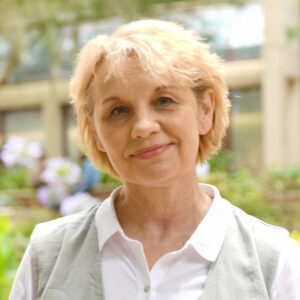 Dr. Irina Kusmartseva holds a Ph.D. in Immunology and currently serves as the Operational Director of the Network for Pancreatic Organ Donors with Diabetes (nPOD) at the University of Florida. She also leads the NIH funded Coordinating Center for the Cardiovascular Repository for Type 1 Diabetes (CaRe-T1D) project. In these roles, Dr. Kusmartseva oversees key administrative functions, including donor acceptance, organ processing, data collection, and research coordination. Her expertise in biobanking spans multiple research programs, including the Human Atlas of Neonatal Development & Early Life Pancreas (HANDEL-P) and the Novo Nordisk Kidney Project. For eight years, she served as Director of the nPOD Organ Processing and Pathology Core, where she played a pivotal role in establishing the independent nPOD laboratory. Under her leadership, the nPOD lab experienced unprecedented growth, incorporating advanced tissue processing techniques and providing support for hundreds nPOD projects. Dr. Kusmartseva has conducted research at esteemed institutions such as the Mount Sinai Icahn School of Medicine and Duke University. Her scientific interests focus on understanding the mechanisms that lead to the targeting and destruction of beta cells in type 1 diabetes, as well as the broader impact of long-term diabetes on the functioning of other organ systems in the human body.
Dr. Irina Kusmartseva holds a Ph.D. in Immunology and currently serves as the Operational Director of the Network for Pancreatic Organ Donors with Diabetes (nPOD) at the University of Florida. She also leads the NIH funded Coordinating Center for the Cardiovascular Repository for Type 1 Diabetes (CaRe-T1D) project. In these roles, Dr. Kusmartseva oversees key administrative functions, including donor acceptance, organ processing, data collection, and research coordination. Her expertise in biobanking spans multiple research programs, including the Human Atlas of Neonatal Development & Early Life Pancreas (HANDEL-P) and the Novo Nordisk Kidney Project. For eight years, she served as Director of the nPOD Organ Processing and Pathology Core, where she played a pivotal role in establishing the independent nPOD laboratory. Under her leadership, the nPOD lab experienced unprecedented growth, incorporating advanced tissue processing techniques and providing support for hundreds nPOD projects. Dr. Kusmartseva has conducted research at esteemed institutions such as the Mount Sinai Icahn School of Medicine and Duke University. Her scientific interests focus on understanding the mechanisms that lead to the targeting and destruction of beta cells in type 1 diabetes, as well as the broader impact of long-term diabetes on the functioning of other organ systems in the human body.
 John S. Kaddis is an Associate Professor in the Department of Diabetes & Cancer Discovery Science within the Arthur Riggs Diabetes & Metabolism Research Institute at City of Hope. Dr. Kaddis is a computational biologist who holds his PhD in Systems Biology and Disease from the University of Southern California, with over 20 years of experience in human type 1 diabetes pathogenesis, technology driven cooperative initiatives, basic science laboratory research, program management, data analysis, and multi-center administration. He has been devising scientific resources for team-based research initiatives and collaborating with researchers to answer questions related to treatment modalities and disease pathology (mainly in type 1 diabetes). Dr. Kaddis currently directs the database program efforts for the Network for Pancreatic Organ donors with Diabetes.
John S. Kaddis is an Associate Professor in the Department of Diabetes & Cancer Discovery Science within the Arthur Riggs Diabetes & Metabolism Research Institute at City of Hope. Dr. Kaddis is a computational biologist who holds his PhD in Systems Biology and Disease from the University of Southern California, with over 20 years of experience in human type 1 diabetes pathogenesis, technology driven cooperative initiatives, basic science laboratory research, program management, data analysis, and multi-center administration. He has been devising scientific resources for team-based research initiatives and collaborating with researchers to answer questions related to treatment modalities and disease pathology (mainly in type 1 diabetes). Dr. Kaddis currently directs the database program efforts for the Network for Pancreatic Organ donors with Diabetes.
 Dr. Klaus H. Kaestner is Professor of Genetics at the University of Pennsylvania School of Medicine, and member of Penn’s Institute for Diabetes, Obesity and Metabolism. Dr. Kaestner received his Ph.D. from the Johns Hopkins University School of Medicine and completed a research fellowship at the German Cancer Research Center in Heidelberg.
Dr. Klaus H. Kaestner is Professor of Genetics at the University of Pennsylvania School of Medicine, and member of Penn’s Institute for Diabetes, Obesity and Metabolism. Dr. Kaestner received his Ph.D. from the Johns Hopkins University School of Medicine and completed a research fellowship at the German Cancer Research Center in Heidelberg.
Dr. Kaestner’s is co-leader of the NIDDK-sponsored Human Pancreas Analysis Program (HPAP), which is part of the Human Islet Research Network (HIRN). HPAP performs deep phenotyping of the human endocrine pancreas to better understand the cellular and molecular events that precede and lead to beta-cell loss and/or dysfunction in type 1 diabetes (T1D) and type 2 diabetes (T2D).
Dr. Kaestner has served on multiple review panels for the Juvenile Diabetes Research Foundation and for the National Institute for Diabetes, Digestive and Kidney Diseases. Dr. Kaestner is past member of the editorial boards of Diabetes and Molecular Endocrinology, and was Associate Editor of the Journal of Clinical Investigation.
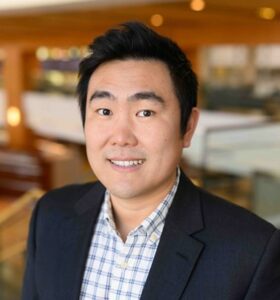 Ramon C. Sun. Ph. D. Anne and Oscar Lackner Endowed Chair and Associate Professor of Biochemistry Molecular Biology, University of Florida. Dr. Sun also directs the newly established UF Center for Spatial Biomolecule Research. Dr. Sun is the leading expert in spatial metabolism, his lab focuses on understanding the molecular events connecting cellular metabolism, signaling, and physiology, with a strong emphasis on disease etiology of metabolic disorders. To date, his lab has developed a number of new mass spectrometry-based methodologies to profile and image the cellular metabolome with single-cell sensitivity and fine spatial resolution to assess microenvironmental influences with sophisticated machine learning software suite for data analysis. His lab is in a uniquely position to formulate scientific hypotheses based on these data-rich spatial technologies, then, test these hypotheses using transdisciplinary techniques in relevant genetically modified cell line and mouse models. Since establishing his lab, Dr. Sun has already published over 70 manuscripts in well-respected journals such as Nature Metabolism, Cell Metabolism, Nature Communications, Science Advances, Molecular Cancer. Dr. Sun’s recent contributions is his research on metabolic etiologies of pulmonary fibrosis, Alzheimer’s disease, and lung cancer. Through the application of his lab’s pioneering spatial metabolomics technologies, he provided foundational insights into how the metabolism and dysregulation of complex carbohydrates can drive the development of chronic disease. Dr. Sun is currently funded by 4 R01 from NIA and NCI, and an RM1 from NINDS.
Ramon C. Sun. Ph. D. Anne and Oscar Lackner Endowed Chair and Associate Professor of Biochemistry Molecular Biology, University of Florida. Dr. Sun also directs the newly established UF Center for Spatial Biomolecule Research. Dr. Sun is the leading expert in spatial metabolism, his lab focuses on understanding the molecular events connecting cellular metabolism, signaling, and physiology, with a strong emphasis on disease etiology of metabolic disorders. To date, his lab has developed a number of new mass spectrometry-based methodologies to profile and image the cellular metabolome with single-cell sensitivity and fine spatial resolution to assess microenvironmental influences with sophisticated machine learning software suite for data analysis. His lab is in a uniquely position to formulate scientific hypotheses based on these data-rich spatial technologies, then, test these hypotheses using transdisciplinary techniques in relevant genetically modified cell line and mouse models. Since establishing his lab, Dr. Sun has already published over 70 manuscripts in well-respected journals such as Nature Metabolism, Cell Metabolism, Nature Communications, Science Advances, Molecular Cancer. Dr. Sun’s recent contributions is his research on metabolic etiologies of pulmonary fibrosis, Alzheimer’s disease, and lung cancer. Through the application of his lab’s pioneering spatial metabolomics technologies, he provided foundational insights into how the metabolism and dysregulation of complex carbohydrates can drive the development of chronic disease. Dr. Sun is currently funded by 4 R01 from NIA and NCI, and an RM1 from NINDS.
Abstract Presenters
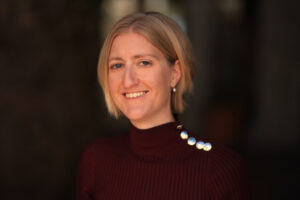 As an Assistant professor at the University of Colorado Anschutz Medical Campus, I lead computational biology initiatives across multiple research programs at the Barbara Davis Diabetes Center, where I develop and implement advanced analytical approaches to understand the complexities of diabetes. Through long-term collaborations with experimental biologists, I bridge computational and biological insights to drive discoveries in beta cell biology and immune system dynamics in Type 1 Diabetes. My integrated approach spans multiple scales – from single-cell genomics to systems-level analyses – allowing me to explore connections across T cells, B cells, macrophages, and pancreatic islet endocrine cells. This cross-disciplinary perspective enables me to identify patterns and mechanisms that might be missed in isolated analyses.
As an Assistant professor at the University of Colorado Anschutz Medical Campus, I lead computational biology initiatives across multiple research programs at the Barbara Davis Diabetes Center, where I develop and implement advanced analytical approaches to understand the complexities of diabetes. Through long-term collaborations with experimental biologists, I bridge computational and biological insights to drive discoveries in beta cell biology and immune system dynamics in Type 1 Diabetes. My integrated approach spans multiple scales – from single-cell genomics to systems-level analyses – allowing me to explore connections across T cells, B cells, macrophages, and pancreatic islet endocrine cells. This cross-disciplinary perspective enables me to identify patterns and mechanisms that might be missed in isolated analyses.
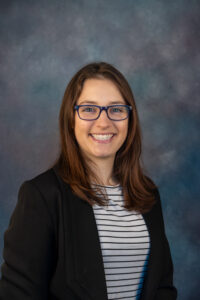 Jessica is a 2nd year Immunology Ph.D. graduate student at the University of Colorado Anschutz Medical Campus in the lab of Dr. Mia Smith. Her work focuses on understanding the various B cell endotypes in the context of type 1 diabetes. In her research, she utilizes single cell sequencing to study transcriptional differences across B cell subsets.
Jessica is a 2nd year Immunology Ph.D. graduate student at the University of Colorado Anschutz Medical Campus in the lab of Dr. Mia Smith. Her work focuses on understanding the various B cell endotypes in the context of type 1 diabetes. In her research, she utilizes single cell sequencing to study transcriptional differences across B cell subsets.
Jessica is originally from Colorado and graduated from Fort Lewis College with a Cellular and Molecular Biology degree. Prior to starting her graduate studies, she worked as an HLA technologist where she was exposed to the broad field of immunology, which ultimately led to her starting her work on type 1 diabetes.
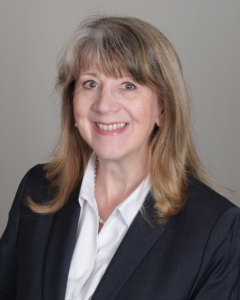 Dr. Alejandra Petrilli is a Postdoctoral Research Scientist in Drs. Anna Casu and Richard Pratley’s group at the Translational Research Institute at AdventHealth, in Orlando, Florida. She earned her PhD in Biomedical Sciences at the University of Central Florida (UCF). She also earned a Masters in Biochemistry from the University of Buenos Aires and a Masters in Molecular Biology and Microbiology from UCF.
Dr. Alejandra Petrilli is a Postdoctoral Research Scientist in Drs. Anna Casu and Richard Pratley’s group at the Translational Research Institute at AdventHealth, in Orlando, Florida. She earned her PhD in Biomedical Sciences at the University of Central Florida (UCF). She also earned a Masters in Biochemistry from the University of Buenos Aires and a Masters in Molecular Biology and Microbiology from UCF.
At AdventHealth, Alejandra investigates the role of pancreatic stellate cells (PSCs) in the pathogenesis and progression of type 1 diabetes (T1D), type 2 diabetes (T2D) and pancreatitis, with an emphasis on understanding the phenotype of the different PSC subpopulations and their therapeutic targeting potential. In addition, Alejandra studies the role of circulating and pancreas-derived extracellular vesicles (EVs) in diabetes and other pancreatic pathologies. By dissecting how EVs contribute to cell-cell communication and identifying key EV cargo with biomarker potential, Alejandra aims to advance our understanding of pathophysiological mechanisms in the pancreas and to improve early detection of pancreatic diseases.
Professor of Pediatrics
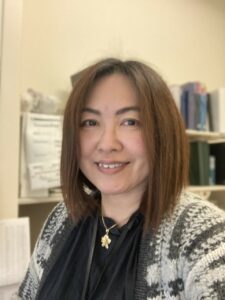 The primary focus of the Nakayama laboratory is to elucidate the mechanisms by which anti-islet autoimmunity is triggered to develop type 1 diabetes (T1D), from the view of the tri-molecular complex consisting of antigen, major histocompatibility complex (MHC), and T cell receptor (TCR).
The primary focus of the Nakayama laboratory is to elucidate the mechanisms by which anti-islet autoimmunity is triggered to develop type 1 diabetes (T1D), from the view of the tri-molecular complex consisting of antigen, major histocompatibility complex (MHC), and T cell receptor (TCR).
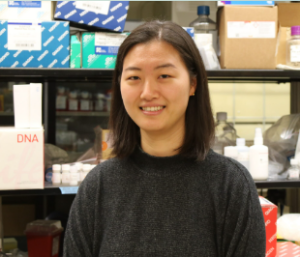 Yu Shen is a 3rd-year PhD candidate in the Department of Chemical and Biomolecular Engineering at the Johns Hopkins University. In her research she applies machine learning and digital pathology techniques to study the microanatomy of the pancreas across endocrine and exocrine diseases. Specifically, her work in diabetes aims to reveal the heterogeneity of islet disfunction with the onset of type 1 diabetes through advanced, multi-plex 3D mapping, and to enable virtual staining of islet cells and insulitis from H&E.
Yu Shen is a 3rd-year PhD candidate in the Department of Chemical and Biomolecular Engineering at the Johns Hopkins University. In her research she applies machine learning and digital pathology techniques to study the microanatomy of the pancreas across endocrine and exocrine diseases. Specifically, her work in diabetes aims to reveal the heterogeneity of islet disfunction with the onset of type 1 diabetes through advanced, multi-plex 3D mapping, and to enable virtual staining of islet cells and insulitis from H&E.
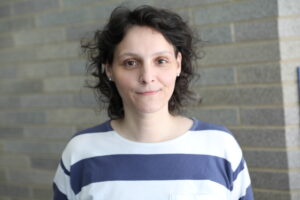 Dr. Verena van der Heide is an Instructor in the Marc and Jennifer Lipschultz Precision Immunology Institute at the Icahn School of Medicine at Mount Sinai, New York.
Dr. Verena van der Heide is an Instructor in the Marc and Jennifer Lipschultz Precision Immunology Institute at the Icahn School of Medicine at Mount Sinai, New York.
Beyond novel approaches to human T1D histopathology and imaging, her research interests focus on the role of specific T cell responses in the context of acute and chronic viral infections as well as autoimmune disease.
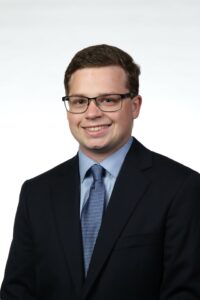 Matthew joined Dr. Todd Brusko’s laboratory in the summer of 2019 as a first-year undergraduate student to study the autoimmune response that leads to the destruction of pancreatic beta cells in type 1 diabetes (T1D). After graduating from the University of Florida with a Bachelor of Science in Biochemistry & Molecular Biology in 2022, Matthew was appointed as a Biological Scientist in the Brusko Lab at the UF Diabetes Institute to continue improving regulatory T cell (Treg) adoptive cellular therapy, developing deliverable biological treatment strategies, and evaluating the roles of T1D candidate genes in disease pathogenesis.
Matthew joined Dr. Todd Brusko’s laboratory in the summer of 2019 as a first-year undergraduate student to study the autoimmune response that leads to the destruction of pancreatic beta cells in type 1 diabetes (T1D). After graduating from the University of Florida with a Bachelor of Science in Biochemistry & Molecular Biology in 2022, Matthew was appointed as a Biological Scientist in the Brusko Lab at the UF Diabetes Institute to continue improving regulatory T cell (Treg) adoptive cellular therapy, developing deliverable biological treatment strategies, and evaluating the roles of T1D candidate genes in disease pathogenesis.
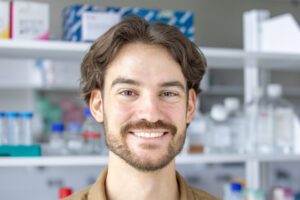 Nathan Steenbuck is a PhD candidate in the Department of Quantitative Biomedicine at the University of Zürich and ETH Zürich, Switzerland. He joined Bernd Bodenmiller’s laboratory in April 2023 after completing his undergraduate studies in Lübeck and his master’s degree in Heidelberg, Germany. His research focuses on mapping the human pancreas using imaging mass cytometry and developing experimental and computational methods for highly multiplexed imaging.
Nathan Steenbuck is a PhD candidate in the Department of Quantitative Biomedicine at the University of Zürich and ETH Zürich, Switzerland. He joined Bernd Bodenmiller’s laboratory in April 2023 after completing his undergraduate studies in Lübeck and his master’s degree in Heidelberg, Germany. His research focuses on mapping the human pancreas using imaging mass cytometry and developing experimental and computational methods for highly multiplexed imaging.
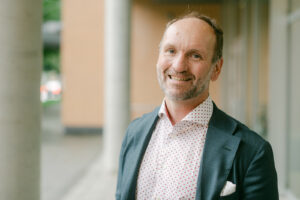 Jim Johnson is Professor in the Department of Cellular and Physiological Sciences at the University of British Columbia, in Vancouver Canada. He is currently Associate Direction of Vancouver Coastal Health Research Institute. Previously, he is was Deputy Director, then Director, of the Life Sciences Institute (LSI) where he was integrally involved with its transformation. His laboratory participates in multiple Research Teams, including those dedicated to diabetes, obesity, cancer, aging, and heart disease.
Jim Johnson is Professor in the Department of Cellular and Physiological Sciences at the University of British Columbia, in Vancouver Canada. He is currently Associate Direction of Vancouver Coastal Health Research Institute. Previously, he is was Deputy Director, then Director, of the Life Sciences Institute (LSI) where he was integrally involved with its transformation. His laboratory participates in multiple Research Teams, including those dedicated to diabetes, obesity, cancer, aging, and heart disease.
Johnson earned his PhD in Physiology and Cell Biology from the University of Alberta under the supervision of Prof. John Chang. His post-doctoral training was with Profs. Stanley Misler and Ken Polonsky at Washington University in St. Louis focused on human islet biology and the genetics of islet cell dysfunction and death using mouse models.
Prof. Johnson is a global leader in the foundational biology of insulin, including both its production and action in multiple contexts including obesity, diabetes, cancer, heart disease. Prof. Johnson is the author of 178 peer-reviewed articles. Highlights include being the first to demonstrate a causal role of hyperinsulinemia in diet-induced obesity, insulin resistance, fatty liver, accelerated aging, and cancer initiation.
Prof. Johnson has won several awards, including being named the top Canadian researcher under 45 by the Canadian Diabetes Association in 2016. He is Editor-in-Chief of the journal Islets.
In 2016, Prof. Johnson co-founded of the Institute for Personalized Therapeutic Nutrition and is Board Chair of this registered charity dedicated to research, clinical care, and advocacy for professionals employing personalized diets to decrease the burden of type 2 diabetes.
From 2016-2018, Prof. Johnson was the inaugural Director of the Novo Nordisk Research Centre in Oxford, a hybrid academic-industry Institute focused on the fundamental biology of type 2 diabetes and target discovery.
Prof. Johnson’s greatest passion is training the next generation of scientists; many of his former trainees hold academic faculty positions or are leaders in industry. Prof. Johnson is actively involved in science outreach on multiple social media sites @JimJohnsonSci.
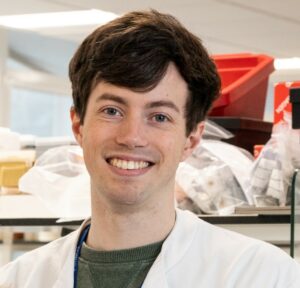 Dr. Teifion Luckett is a bioinformatician and has recently joined the Islet Biology Exeter team, working under the supervision of Professor Sarah Richardson. He undertook his doctoral training at the University of Liverpool where he investigated immune-mediated drivers of pancreatic cancer metastasis.
Dr. Teifion Luckett is a bioinformatician and has recently joined the Islet Biology Exeter team, working under the supervision of Professor Sarah Richardson. He undertook his doctoral training at the University of Liverpool where he investigated immune-mediated drivers of pancreatic cancer metastasis.
Teifion’s current research uses bioimage and transcriptional analyses to investigate how the human pancreas matures post-birth and how this is affected in type 1 diabetes.
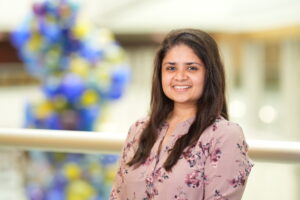 Dr. Chaitra Rao is a Postdoctoral Fellow in Dr. Emily Sims’ lab at the Indiana University School of Medicine in Indianapolis. She obtained her PhD in Cancer Research from the University of Nebraska Medical Center, Omaha. Chaitra’s work in Dr. Sims’ lab focuses on the response of pancreatic islet beta cells to inflammation, a critical factor in the development of Type 1 Diabetes (T1D). Specifically, she investigates the pathophysiology of changes in islet extracellular vesicle (EV) cargo during inflammatory stress, examining how beta cell EV cargo influences intercellular communication and the survival of beta cells throughout T1D progression. Supported by the Breakthrough T1D postdoctoral fellowship and the Diabetes Research Connection, she is working to develop potential blood-based biomarkers that could provide crucial insights into T1D heterogeneity.
Dr. Chaitra Rao is a Postdoctoral Fellow in Dr. Emily Sims’ lab at the Indiana University School of Medicine in Indianapolis. She obtained her PhD in Cancer Research from the University of Nebraska Medical Center, Omaha. Chaitra’s work in Dr. Sims’ lab focuses on the response of pancreatic islet beta cells to inflammation, a critical factor in the development of Type 1 Diabetes (T1D). Specifically, she investigates the pathophysiology of changes in islet extracellular vesicle (EV) cargo during inflammatory stress, examining how beta cell EV cargo influences intercellular communication and the survival of beta cells throughout T1D progression. Supported by the Breakthrough T1D postdoctoral fellowship and the Diabetes Research Connection, she is working to develop potential blood-based biomarkers that could provide crucial insights into T1D heterogeneity.
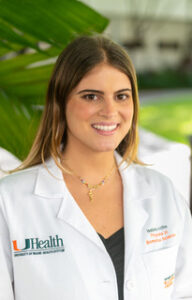 Isabella Altilio is a PhD candidate at the University of Miami, conducting pioneering research in Dr. Juan Dominguez-Bendala’s lab at the Diabetes Research Institute. As part of the Translational Science Program, her work focuses on advancing beta cell regeneration mechanisms and developing novel therapies for diabetes by exploring the non-endocrine portion of the pancreas, specifically the ducts in diseased pancreatic samples. In addition to her academic research, she serves as the Executive Vice President of Communication and Content Strategy at Nucleate HQ, where she leads regional efforts and creates content strategies to support the biotech sector.
Isabella Altilio is a PhD candidate at the University of Miami, conducting pioneering research in Dr. Juan Dominguez-Bendala’s lab at the Diabetes Research Institute. As part of the Translational Science Program, her work focuses on advancing beta cell regeneration mechanisms and developing novel therapies for diabetes by exploring the non-endocrine portion of the pancreas, specifically the ducts in diseased pancreatic samples. In addition to her academic research, she serves as the Executive Vice President of Communication and Content Strategy at Nucleate HQ, where she leads regional efforts and creates content strategies to support the biotech sector.
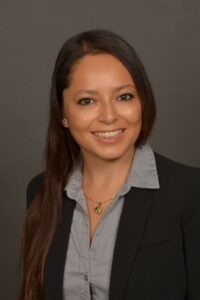 Paola Apaolaza is a senior research scientist at the Helmholtz Center Munich (Germany). She earned her Ph.D. in Pharmacy from the University of the Basque Country (Spain) in 2015. During her doctoral studies, she worked on developing advanced therapies and nanopharmaceuticals for treating genetic disorders and neovascularization associated with eye diseases. In 2016, after completing her degree, she worked as a postdoctoral fellow in the Department of Pharmaceutical Technology at the University of Regensburg (Germany), where her research focused on the treatment and physiological aspects of diabetic retinopathy. In 2018, she joined Dr. Teresa Rodriguez-Calvo’s group at the Type 1 Diabetes Pathology Research Unit. Her current work centers on unraveling the roles of enteroviruses (EV), the immune system, and prohormone processing in the pathogenesis of type 1 diabetes (T1D). During her tenure at Helmholtz, she has contributed to numerous scientific publications in collaboration with the Network for Pancreatic Organ Donors with Diabetes (nPOD).
Paola Apaolaza is a senior research scientist at the Helmholtz Center Munich (Germany). She earned her Ph.D. in Pharmacy from the University of the Basque Country (Spain) in 2015. During her doctoral studies, she worked on developing advanced therapies and nanopharmaceuticals for treating genetic disorders and neovascularization associated with eye diseases. In 2016, after completing her degree, she worked as a postdoctoral fellow in the Department of Pharmaceutical Technology at the University of Regensburg (Germany), where her research focused on the treatment and physiological aspects of diabetic retinopathy. In 2018, she joined Dr. Teresa Rodriguez-Calvo’s group at the Type 1 Diabetes Pathology Research Unit. Her current work centers on unraveling the roles of enteroviruses (EV), the immune system, and prohormone processing in the pathogenesis of type 1 diabetes (T1D). During her tenure at Helmholtz, she has contributed to numerous scientific publications in collaboration with the Network for Pancreatic Organ Donors with Diabetes (nPOD).
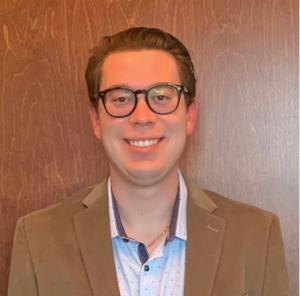 Brandon Dinner is a 3rd year Ph.D. Candidate at the Skaggs Graduate School of Chemical and Biological Sciences at Scripps Research in La Jolla, California. As a student in the laboratory of Dr. Luc Teyton, Brandon uses iPSC-derived islet-like organoids (iPSC-islets) to investigate mechanisms of b cell antigen presentation, the impact of inflammation on the neoantigen formation and antigen spreading in the context of T1D, and ultimately, the nature of iPSC-derived peptides that support the reactivation of memory CD4+ T cells in autologous iPSC-islet grafts.
Brandon Dinner is a 3rd year Ph.D. Candidate at the Skaggs Graduate School of Chemical and Biological Sciences at Scripps Research in La Jolla, California. As a student in the laboratory of Dr. Luc Teyton, Brandon uses iPSC-derived islet-like organoids (iPSC-islets) to investigate mechanisms of b cell antigen presentation, the impact of inflammation on the neoantigen formation and antigen spreading in the context of T1D, and ultimately, the nature of iPSC-derived peptides that support the reactivation of memory CD4+ T cells in autologous iPSC-islet grafts.
Brandon is originally from South Florida and graduated with a Bachelor of Science degree and earned Departmental Honors in Microbiology and Immunology from the University of Miami while working in the laboratory of Dr. Arba Ager. Brandon is enthusiastic to present his work at his first nPOD conference and looks forward to engaging with and learning from its attendees. When not at the bench, Brandon will be found reading, mountain biking, or running.
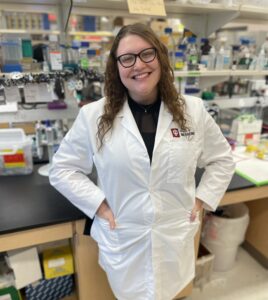 Leslie Wagner is an NIH F31-funded PhD candidate in the lab of Amelia Linnemann at the Indiana University School of Medicine. Here, Leslie studies how the beta cell responds to various cytokines produced in the innate immune response. Leslie uses various biological techniques in her research, including intravital microscopy, live islet imaging, and immunofluorescence staining. In her free time, Leslie enjoys spending time with her two corgis, Lumen and Leica.
Leslie Wagner is an NIH F31-funded PhD candidate in the lab of Amelia Linnemann at the Indiana University School of Medicine. Here, Leslie studies how the beta cell responds to various cytokines produced in the innate immune response. Leslie uses various biological techniques in her research, including intravital microscopy, live islet imaging, and immunofluorescence staining. In her free time, Leslie enjoys spending time with her two corgis, Lumen and Leica.
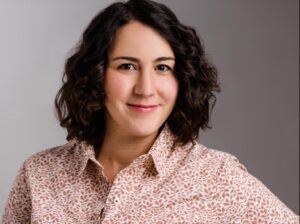 Patricia Velado is a doctoral researcher at Helmholtz Munich (Germany), working under the supervision of Dr. Teresa Rodriguez-Calvo. Her research focuses on the role of insulin granule components in the pathogenesis of Type 1 Diabetes. She earned her degree in Biology from the University of A Coruna (Spain) in 2013 and completed the Erasmus Mundus Master Programme in Evolutionary Biology in 2015, receiving a double degree from Uppsala University (Sweden) and Ludwig Maximilian University of Munich (Germany).
Patricia Velado is a doctoral researcher at Helmholtz Munich (Germany), working under the supervision of Dr. Teresa Rodriguez-Calvo. Her research focuses on the role of insulin granule components in the pathogenesis of Type 1 Diabetes. She earned her degree in Biology from the University of A Coruna (Spain) in 2013 and completed the Erasmus Mundus Master Programme in Evolutionary Biology in 2015, receiving a double degree from Uppsala University (Sweden) and Ludwig Maximilian University of Munich (Germany).
Before begining her doctoral studies, Patricia gained extensive experience as a research assistant, contributing to projects across diverse scientific fields. She joined the Type 1 Diabetes Pathology Research Unit in 2021 as a research assistant and lab coordinator. In 2022, she was awarded a doctoral position at the International Helmholtz Research School for Diabetes and Dr. Rodriguez-Calvo’s lab.
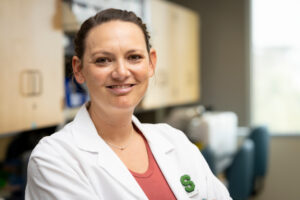 Dr. Julia Panzer is an Assistant Research Professor at City of Hope in the Department of Diabetes Immunology under the leadership of Dr. Pugliese. Her research focuses on pancreatic alpha cells and their role in glucose regulation, with an emphasis on their dysfunction in type 1 diabetes. As director of the nPOD West site at City of Hope, she manages organ processing, functional assessments and coordinates the distribution of pancreatic tissue slices and isolated islets to nPOD investigators.
Dr. Julia Panzer is an Assistant Research Professor at City of Hope in the Department of Diabetes Immunology under the leadership of Dr. Pugliese. Her research focuses on pancreatic alpha cells and their role in glucose regulation, with an emphasis on their dysfunction in type 1 diabetes. As director of the nPOD West site at City of Hope, she manages organ processing, functional assessments and coordinates the distribution of pancreatic tissue slices and isolated islets to nPOD investigators.

I’m Sandra Mara Ferreira. Currently, I’m postdoctoral in the Phelps Lab at Biomedical Engineering, University of Florida. I got my master’s and PhD in Molecular and Functional Biology at the University of Campinas, Brazil. My studies have been focused on pancreatic islet biology, specifically on the mechanisms that control pancreatic beta cell function.
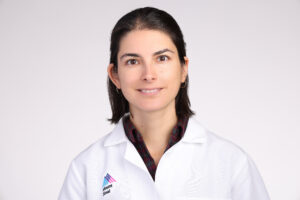 Dr. Esra Karakose completed her PhD studies at the Max Planck Institute for Biochemistry and pursued postdoctoral studies at Icahn School of Medicine in Dr. Andrew Stewart’s group. She is currently an Assistant Professor at Icahn School of Medicine. Her main research interest is to understand the regulation of human beta cell regeneration. More specifically, she is studying the effect of human beta cell regenerative drugs (such as DYRK1A inhibitors and GLP-1RAs) on human islets both in vitro and in vivo, especially focusing on lineage dynamics in human islets in recent years. In parallel, she is also studying the molecular mechanisms regulating human beta cell replication in human insulinomas as a model.
Dr. Esra Karakose completed her PhD studies at the Max Planck Institute for Biochemistry and pursued postdoctoral studies at Icahn School of Medicine in Dr. Andrew Stewart’s group. She is currently an Assistant Professor at Icahn School of Medicine. Her main research interest is to understand the regulation of human beta cell regeneration. More specifically, she is studying the effect of human beta cell regenerative drugs (such as DYRK1A inhibitors and GLP-1RAs) on human islets both in vitro and in vivo, especially focusing on lineage dynamics in human islets in recent years. In parallel, she is also studying the molecular mechanisms regulating human beta cell replication in human insulinomas as a model.
Dr Karakose has received prestigious awards such as K-01 award from NIH, Career Development Award from Breakthrough T1D and Distinguished Scholar Award from Mount Sinai, among others. Her future research directions include studying epigenetic regulation of human beta cell replication in insulinomas and she will discuss here recent results at the nPOD meeting.
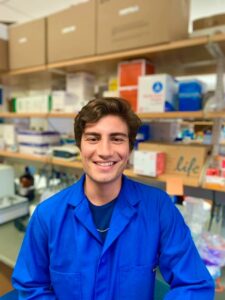 Charles joined Dr. Ed Phelps’ lab as a master’s student in 2020, where he worked on molecular sub-cloning of GABA biosensors to investigate the role of GABA as a paracrine and autocrine signal in pancreatic beta cells. After earning his M.S. in Biomedical Engineering from the University of Florida, he continued in Dr. Phelps’ lab as a Ph.D. student. His research focuses on integrating adenoviral biosensors into pancreatic tissue slices to study calcium signaling, glucose responsiveness, and metabolic dysfunction in pancreatic islets, particularly in the context of type 1 diabetes (T1D). At this conference he will present the utility of CaMPARI2 as a functional biosensor for monitoring calcium activity in human pancreatic tissue slices. This approach enables higher-throughput assessment of calcium dynamics and glucose responsiveness across different disease states, including T1D and T2D, as well as various stages of disease progression.
Charles joined Dr. Ed Phelps’ lab as a master’s student in 2020, where he worked on molecular sub-cloning of GABA biosensors to investigate the role of GABA as a paracrine and autocrine signal in pancreatic beta cells. After earning his M.S. in Biomedical Engineering from the University of Florida, he continued in Dr. Phelps’ lab as a Ph.D. student. His research focuses on integrating adenoviral biosensors into pancreatic tissue slices to study calcium signaling, glucose responsiveness, and metabolic dysfunction in pancreatic islets, particularly in the context of type 1 diabetes (T1D). At this conference he will present the utility of CaMPARI2 as a functional biosensor for monitoring calcium activity in human pancreatic tissue slices. This approach enables higher-throughput assessment of calcium dynamics and glucose responsiveness across different disease states, including T1D and T2D, as well as various stages of disease progression.
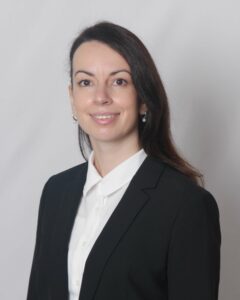 Dr. Valeriia Muradova is a pediatric endocrinology fellow at the University of Florida, dedicated to advancing care for children with endocrine disorders, including diabetes. She earned her medical degree from Saint Petersburg Pediatric Medical University, where her passion for pediatric endocrinology began. This passion led her to the University of Florida, renowned for its excellence in pediatric diabetes and endocrine care. At UF, Dr. Muradova specializes in managing complex endocrine conditions and advancing research to improve diabetes outcomes. Her ultimate goal is to enhance patient care and the quality of life for children and their families. Outside of medicine, Dr. Muradova enjoys gardening, artisan sourdough bread baking, and exploring Florida’s vibrant natural landscapes.
Dr. Valeriia Muradova is a pediatric endocrinology fellow at the University of Florida, dedicated to advancing care for children with endocrine disorders, including diabetes. She earned her medical degree from Saint Petersburg Pediatric Medical University, where her passion for pediatric endocrinology began. This passion led her to the University of Florida, renowned for its excellence in pediatric diabetes and endocrine care. At UF, Dr. Muradova specializes in managing complex endocrine conditions and advancing research to improve diabetes outcomes. Her ultimate goal is to enhance patient care and the quality of life for children and their families. Outside of medicine, Dr. Muradova enjoys gardening, artisan sourdough bread baking, and exploring Florida’s vibrant natural landscapes.
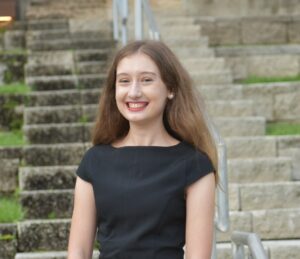 Emerson is a senior undergraduate researcher in Dr. Todd Brusko’s lab, pursuing a degree in Biochemistry and Molecular Biology, which she will complete in Spring 2025. Her research focuses on investigating the role of CD226 in CD8+ T cells and its implications for human type 1 diabetes.
Emerson is a senior undergraduate researcher in Dr. Todd Brusko’s lab, pursuing a degree in Biochemistry and Molecular Biology, which she will complete in Spring 2025. Her research focuses on investigating the role of CD226 in CD8+ T cells and its implications for human type 1 diabetes.
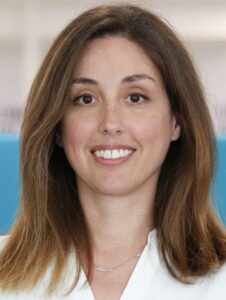 Dr. Ery Petropoulou is a senior postdoctoral researcher at the Institute of Diabetes Research at Helmholtz Munich. Her research delves into the role of HLA-I overexpression and proinsulin processing defects in the pathogenesis of Type 1 Diabetes. Using nPOD pancreatic tissue sections, stem cell derived- and human- islets, along with state-of-the-art microscope techniques and image analysis, Ery aims to unravel the cellular composition of beta cells during T1D progression. Prior to joining Helmholtz Munich, she held a postdoctoral position at Columbia University in the City of New York, where she developed an osteoblast-enriched protein into a candidate biological compound for the treatment of diet-induced obesity. Ery earned a PhD in Pharmacology from the University of Patras, Greece, where she conducted groundbreaking research in the field of dyslipidemias, working with knockout mouse models and recombinant adenoviruses. She also holds a Master’s degree in Pharmacogenomics and Toxicology from the University of Patras and a Bachelor’s degree in Biology from the National and Kapodistrian University of Athens. In addition to her research, Ery has mentored numerous students, guiding them through their own scientific journeys and fostering a collaborative and supportive research environment.
Dr. Ery Petropoulou is a senior postdoctoral researcher at the Institute of Diabetes Research at Helmholtz Munich. Her research delves into the role of HLA-I overexpression and proinsulin processing defects in the pathogenesis of Type 1 Diabetes. Using nPOD pancreatic tissue sections, stem cell derived- and human- islets, along with state-of-the-art microscope techniques and image analysis, Ery aims to unravel the cellular composition of beta cells during T1D progression. Prior to joining Helmholtz Munich, she held a postdoctoral position at Columbia University in the City of New York, where she developed an osteoblast-enriched protein into a candidate biological compound for the treatment of diet-induced obesity. Ery earned a PhD in Pharmacology from the University of Patras, Greece, where she conducted groundbreaking research in the field of dyslipidemias, working with knockout mouse models and recombinant adenoviruses. She also holds a Master’s degree in Pharmacogenomics and Toxicology from the University of Patras and a Bachelor’s degree in Biology from the National and Kapodistrian University of Athens. In addition to her research, Ery has mentored numerous students, guiding them through their own scientific journeys and fostering a collaborative and supportive research environment.
Postdoctoral Associate, Atkinson Laboratory, Diabetes Institute, University of Florida

Dr. Alexandra Rippa is a cell biologist with experience in translational research on tissue development and regeneration. She earned her Ph.D. at the Koltsov Institute of Developmental Biology (Moscow, Russia) in 2015, where she investigated mechanisms of skin morphogenesis and wound healing, focusing on genetic disorders linked to alopecia. Her work established innovative methods for assessing epidermal abnormalities during embryonic skin development.
She joined Dr. Mark Atkinson’s laboratory at the University of Florida as a postdoctoral associate in January 2023. Currently, Dr. Rippa’s work is focused on the comparative analysis of the pancreas morphology in 3D view across non-diabetic, GAD autoantibody-positive (GADA), and T1D donors. She has optimized 3D light sheet microscopy protocols to analyze islet composition, size and immune cell distribution across donor cohorts, providing insights into pancreatic beta-cell depletion in T1D progression.
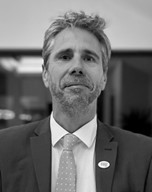 Tim Tree is a specialist in human T cell immunology with particular expertise in analysing the function of autoreactive and regulatory T cells in human health and disease. Tim is a Professor of Immune Regulation and Immunotherapy in the Department of Immunobiology, King’s College London. He is Head of the Diabetes UK/JDRF funded Type 1 Diabetes Immunotherapy Consortium Mechanistic Core and is a founder member and of INNODIA both of which aim to understand and arrest the development of type 1 diabetes.
Tim Tree is a specialist in human T cell immunology with particular expertise in analysing the function of autoreactive and regulatory T cells in human health and disease. Tim is a Professor of Immune Regulation and Immunotherapy in the Department of Immunobiology, King’s College London. He is Head of the Diabetes UK/JDRF funded Type 1 Diabetes Immunotherapy Consortium Mechanistic Core and is a founder member and of INNODIA both of which aim to understand and arrest the development of type 1 diabetes.